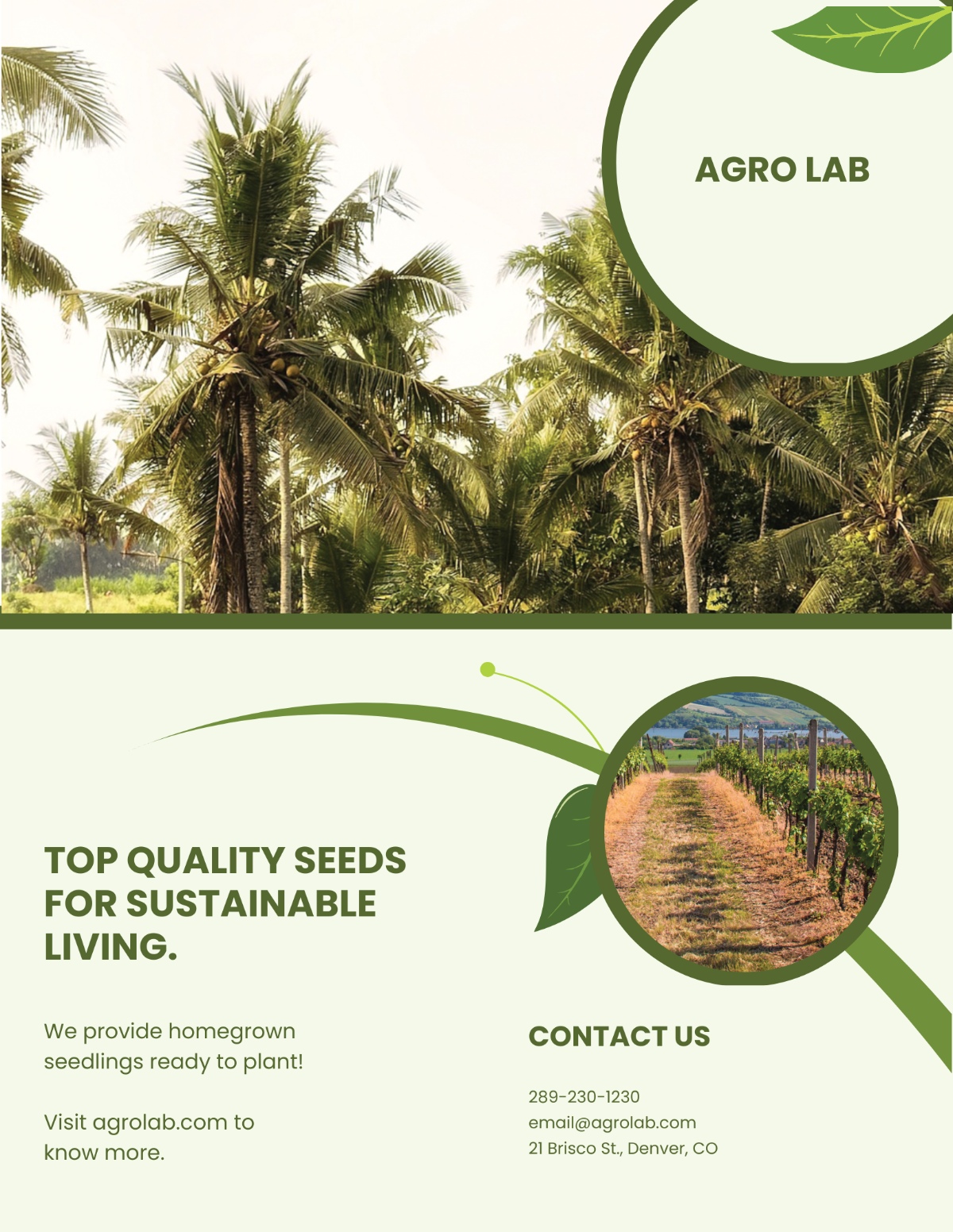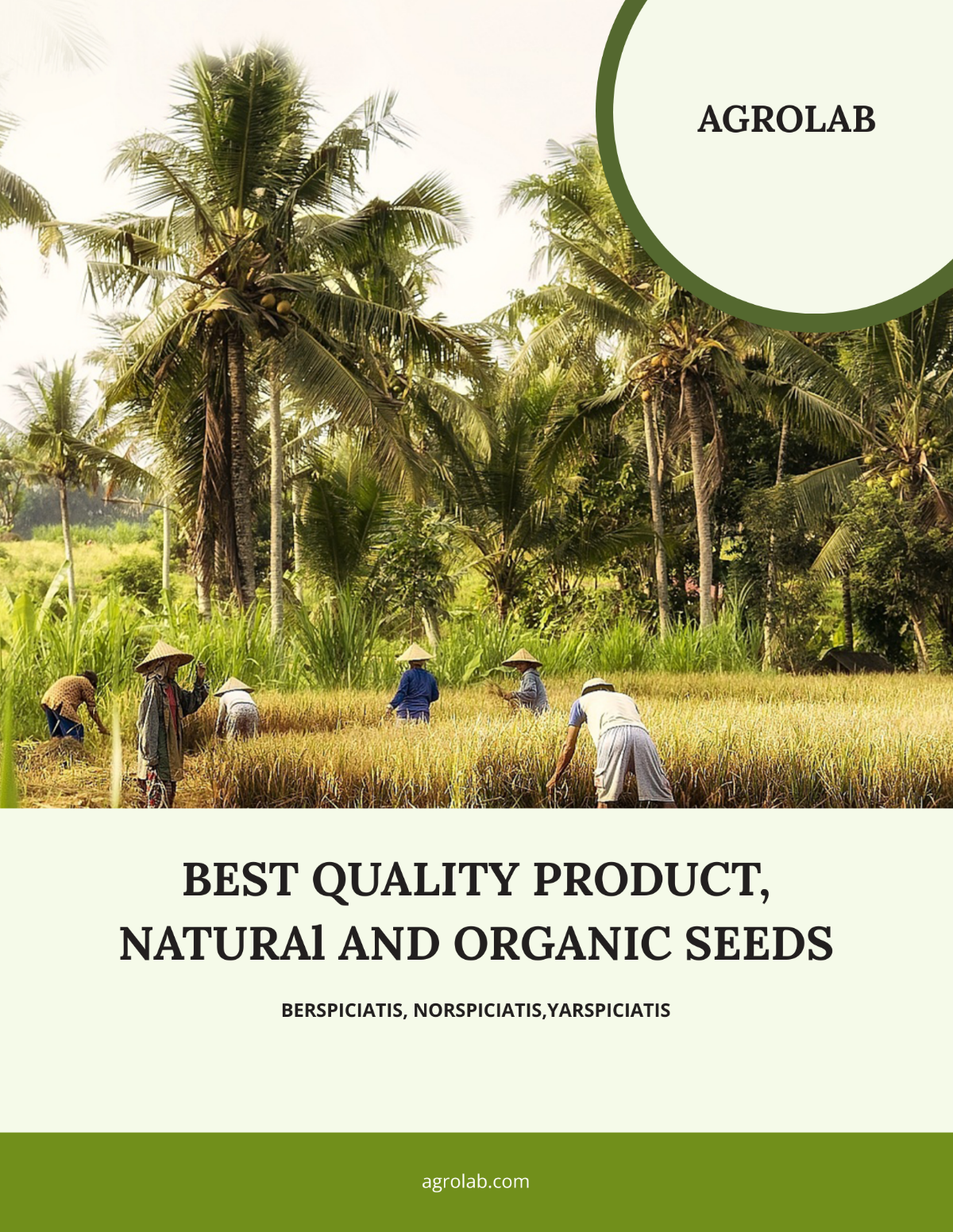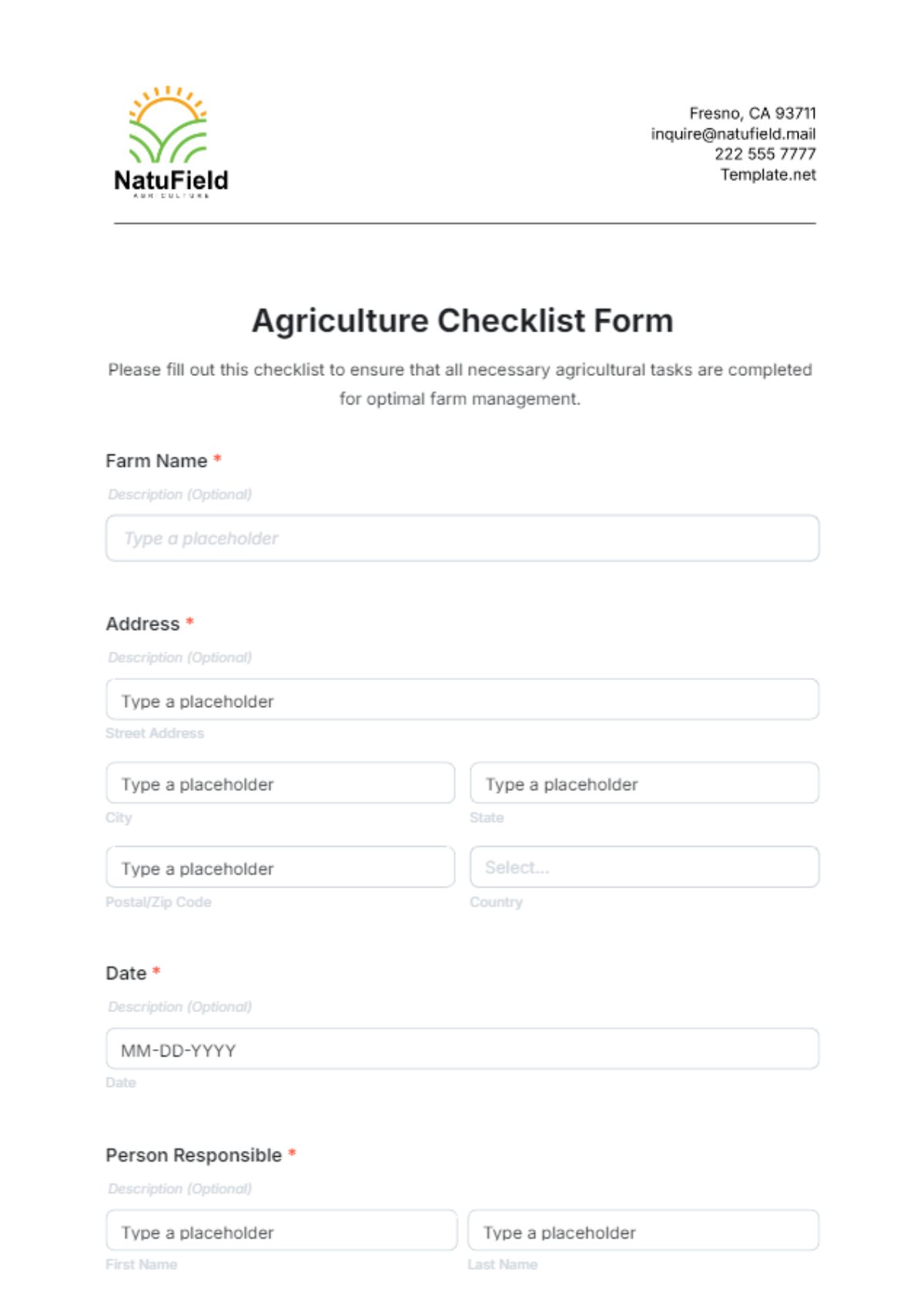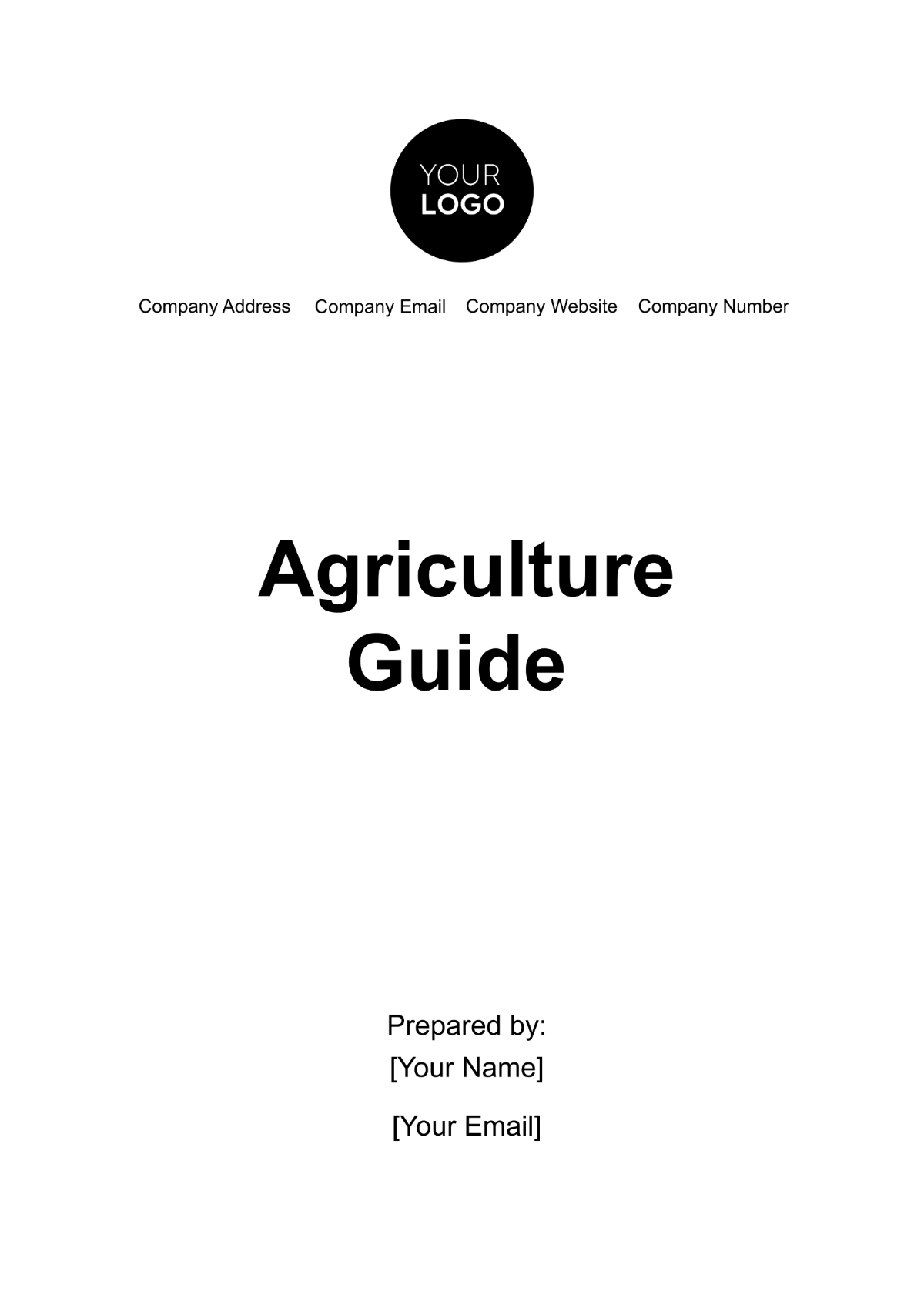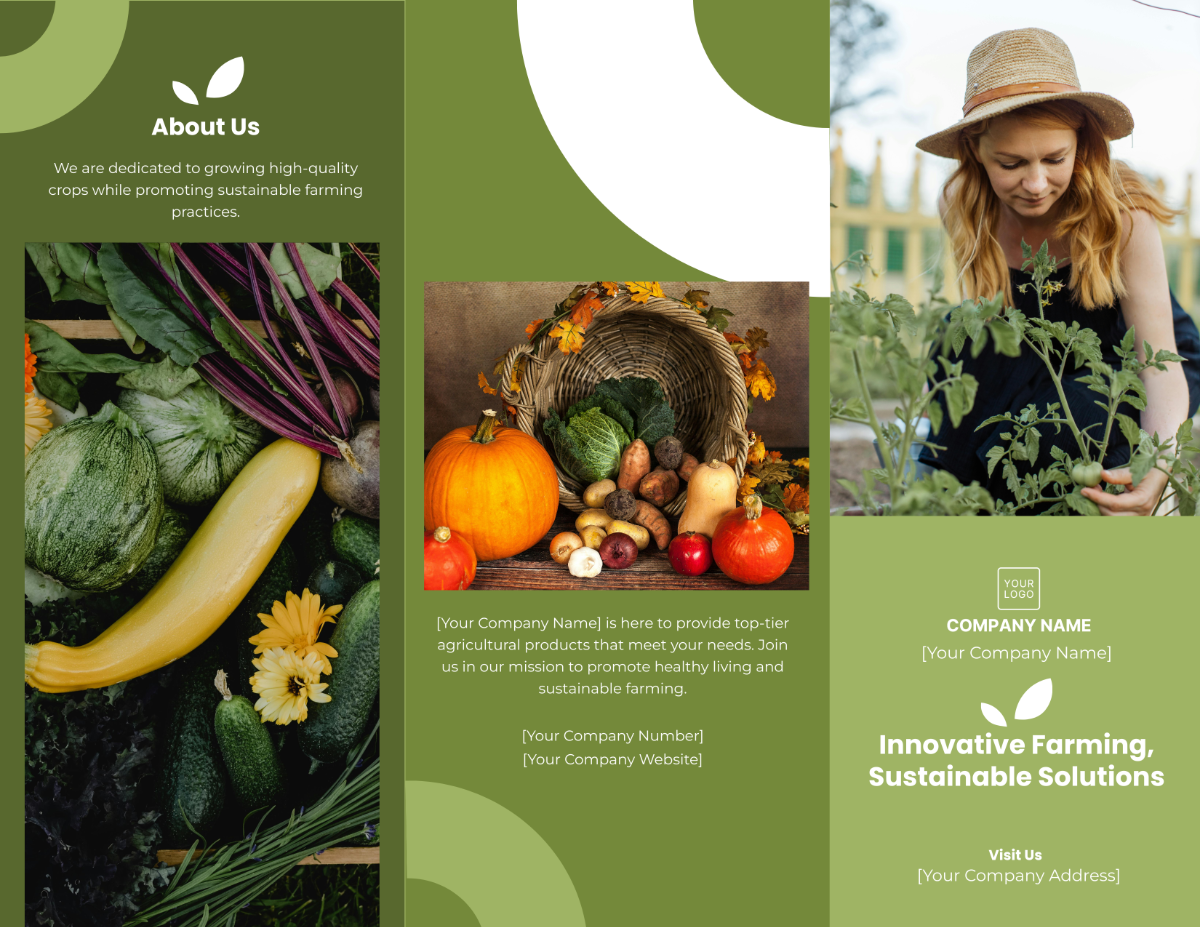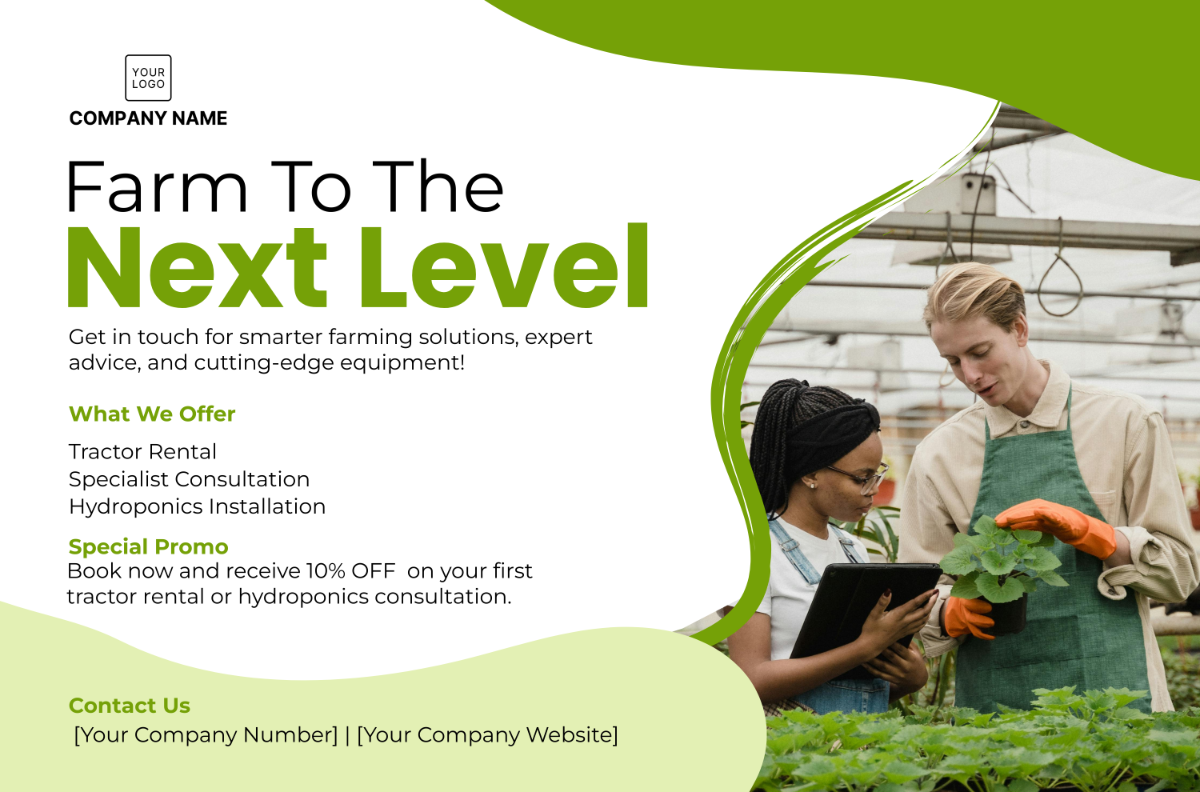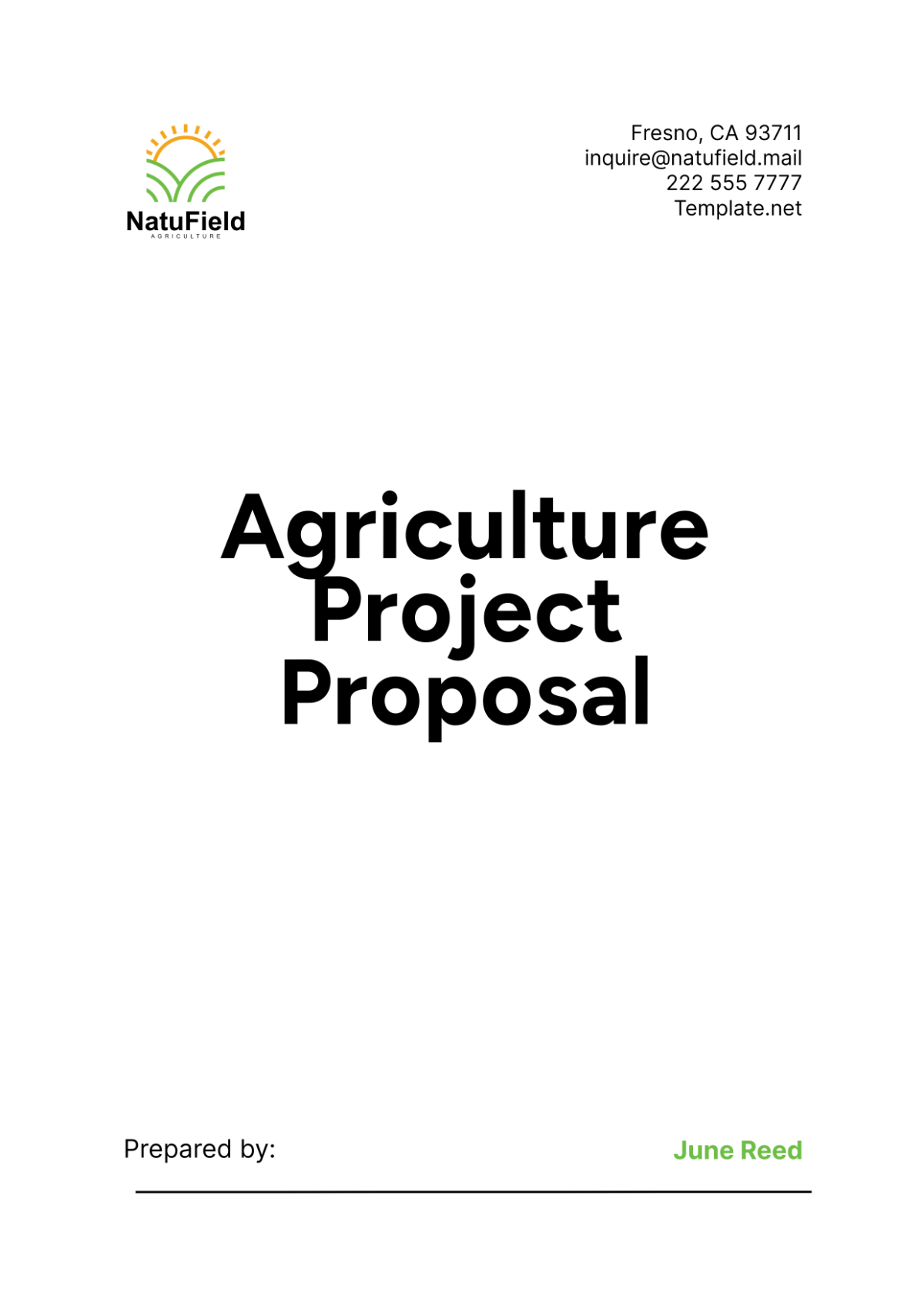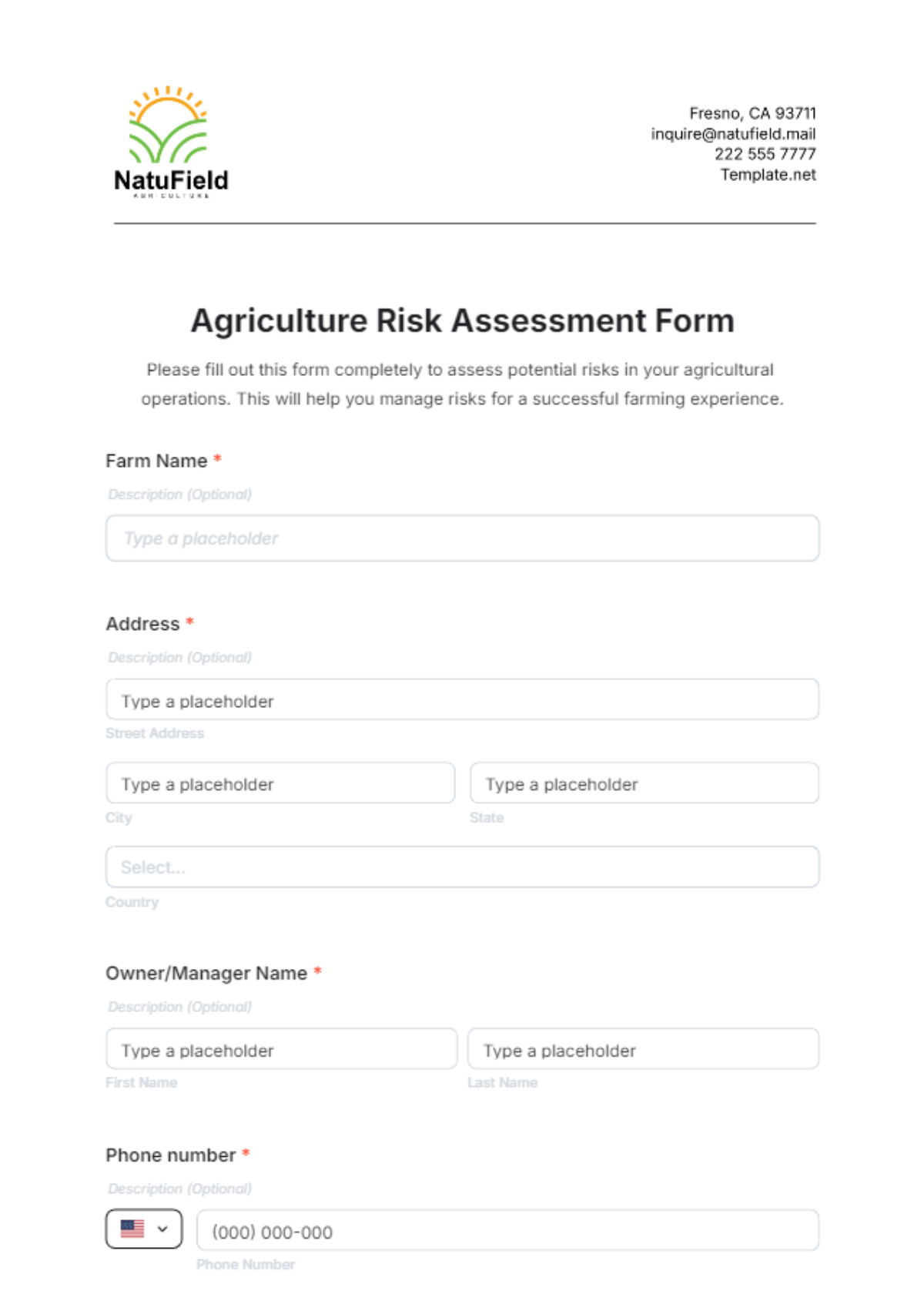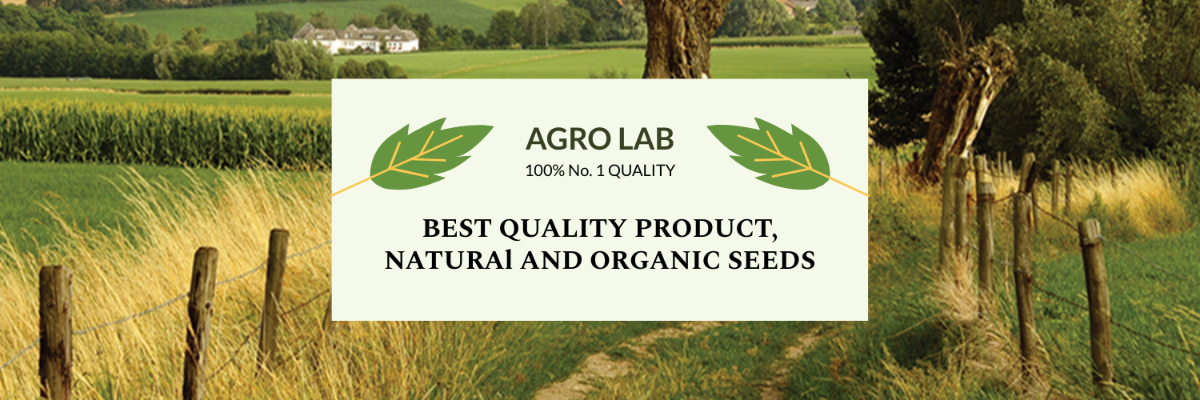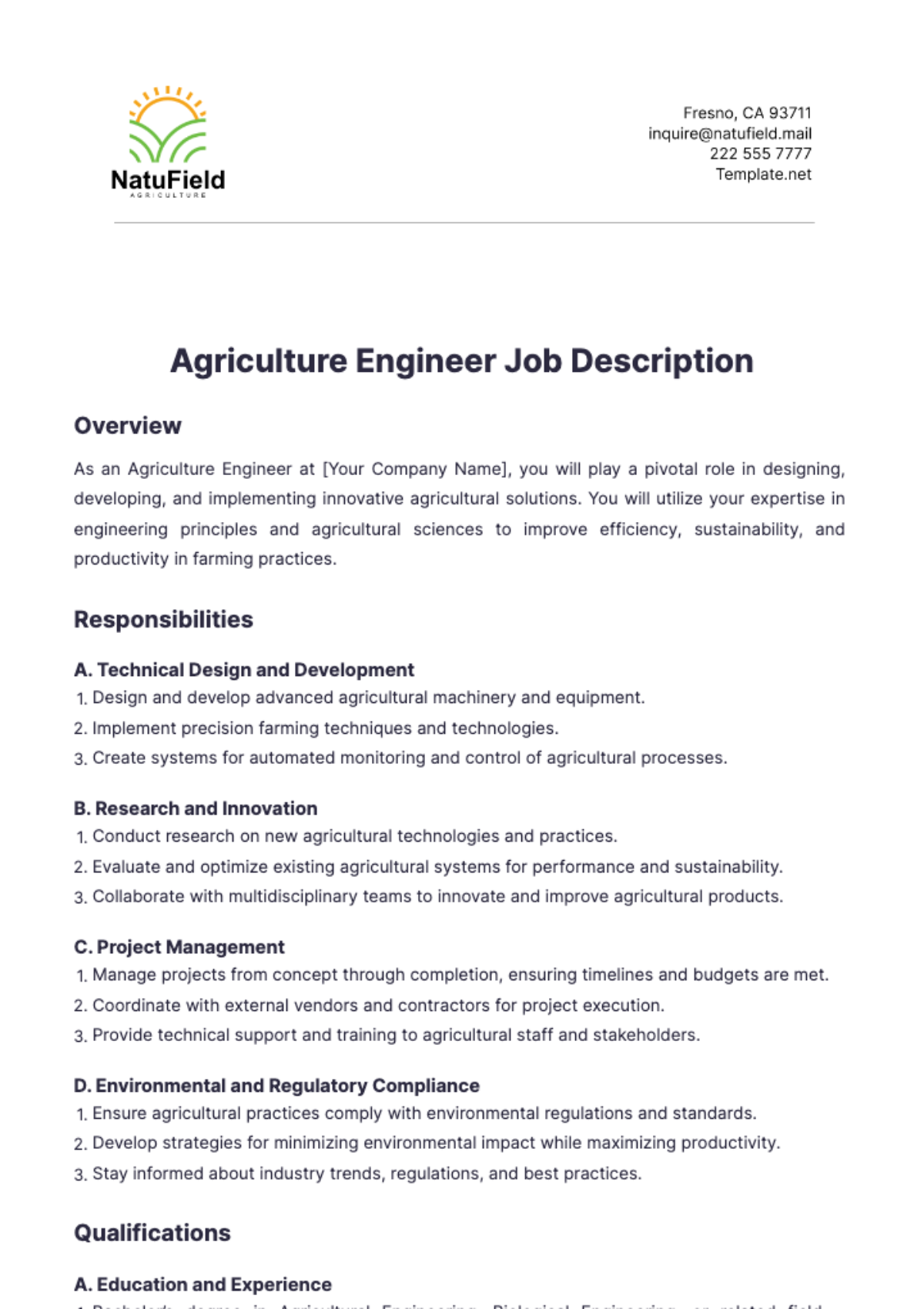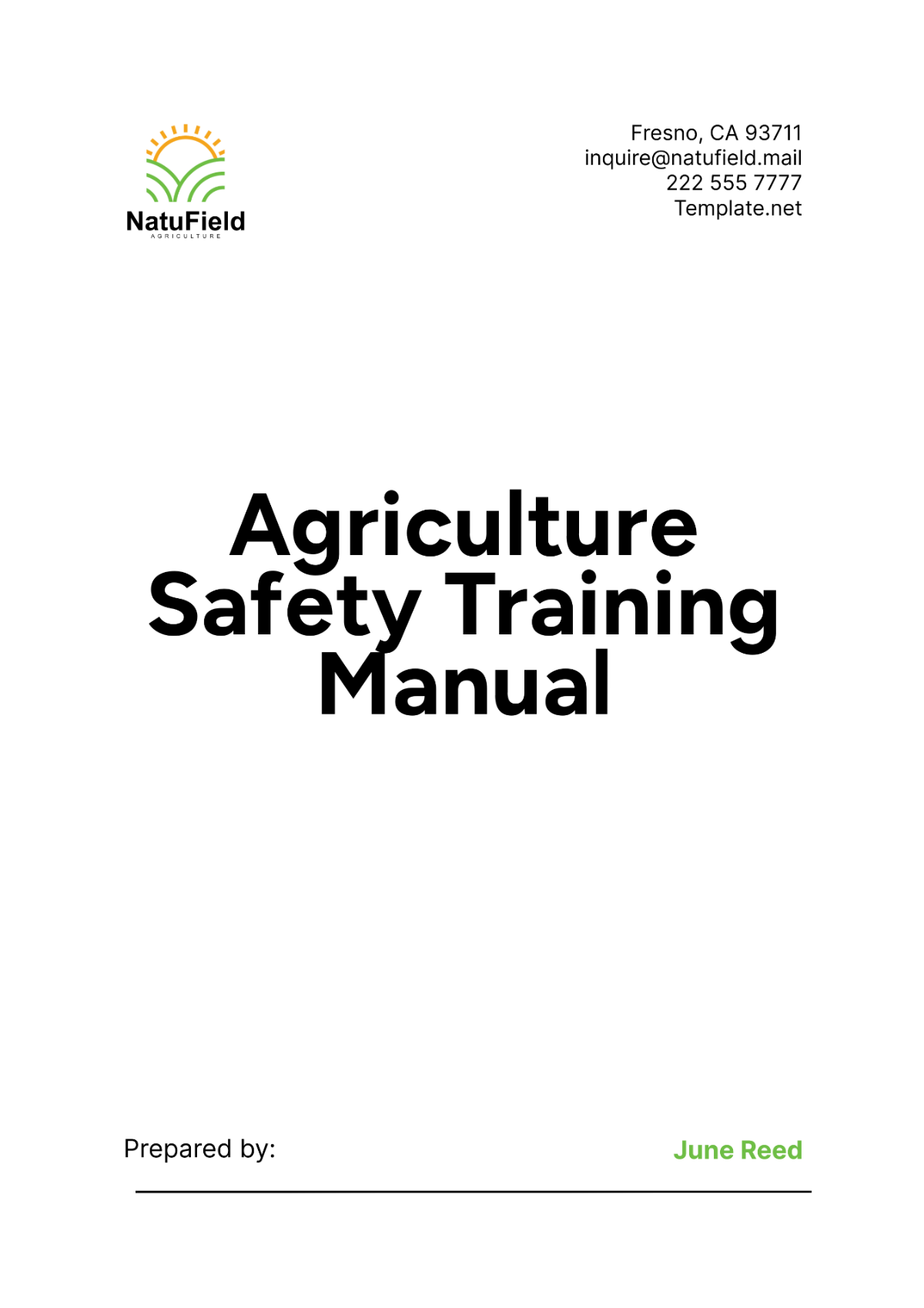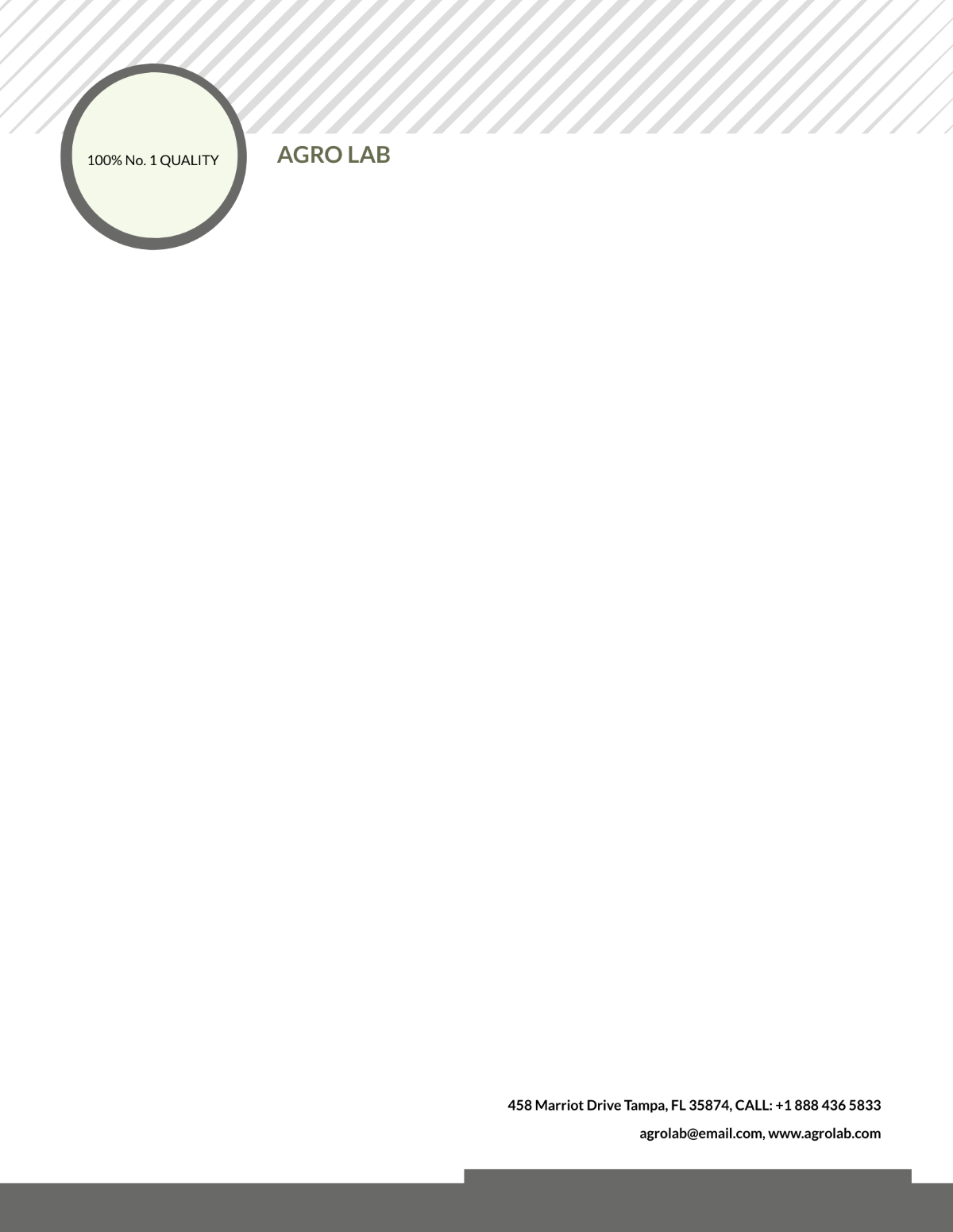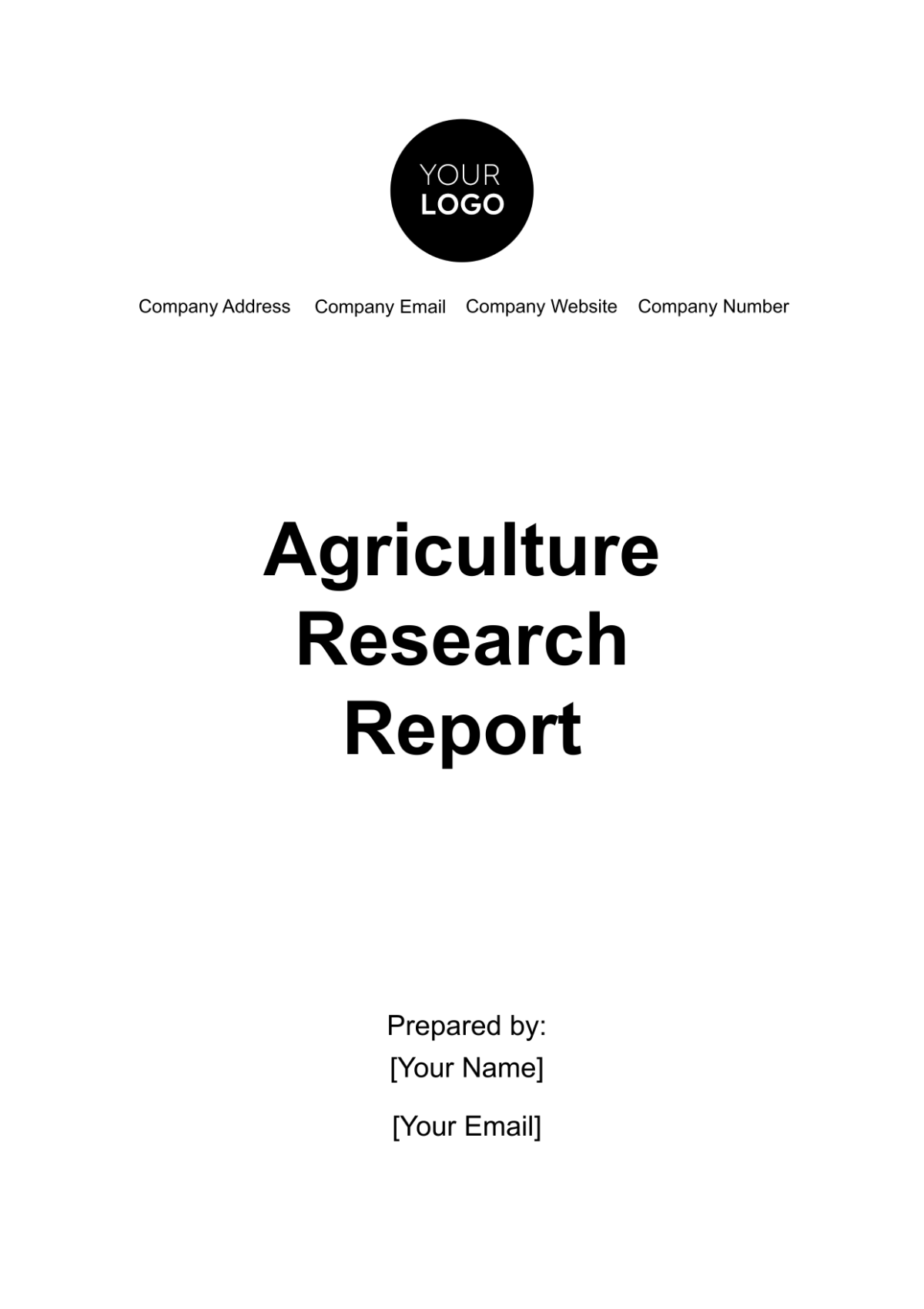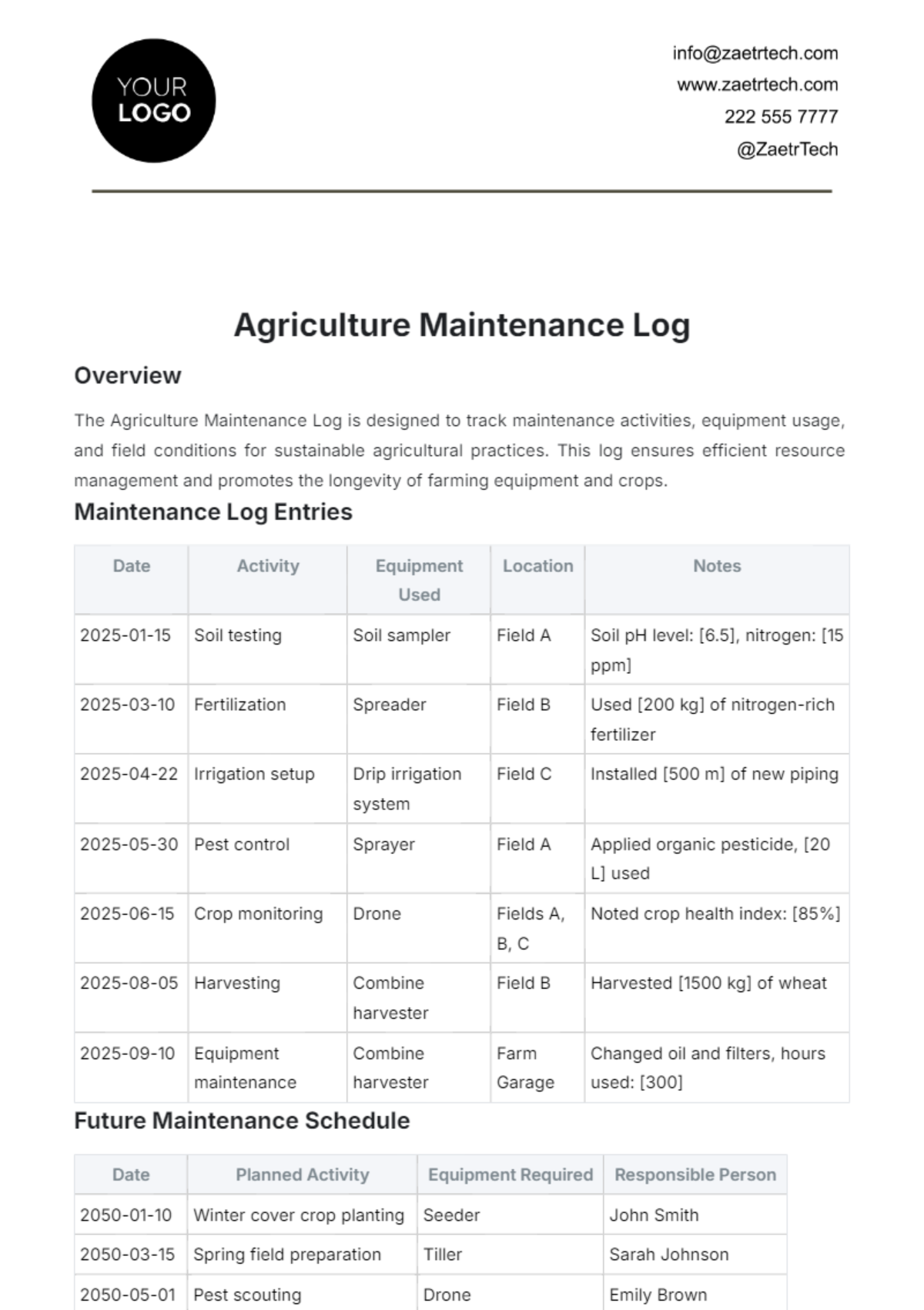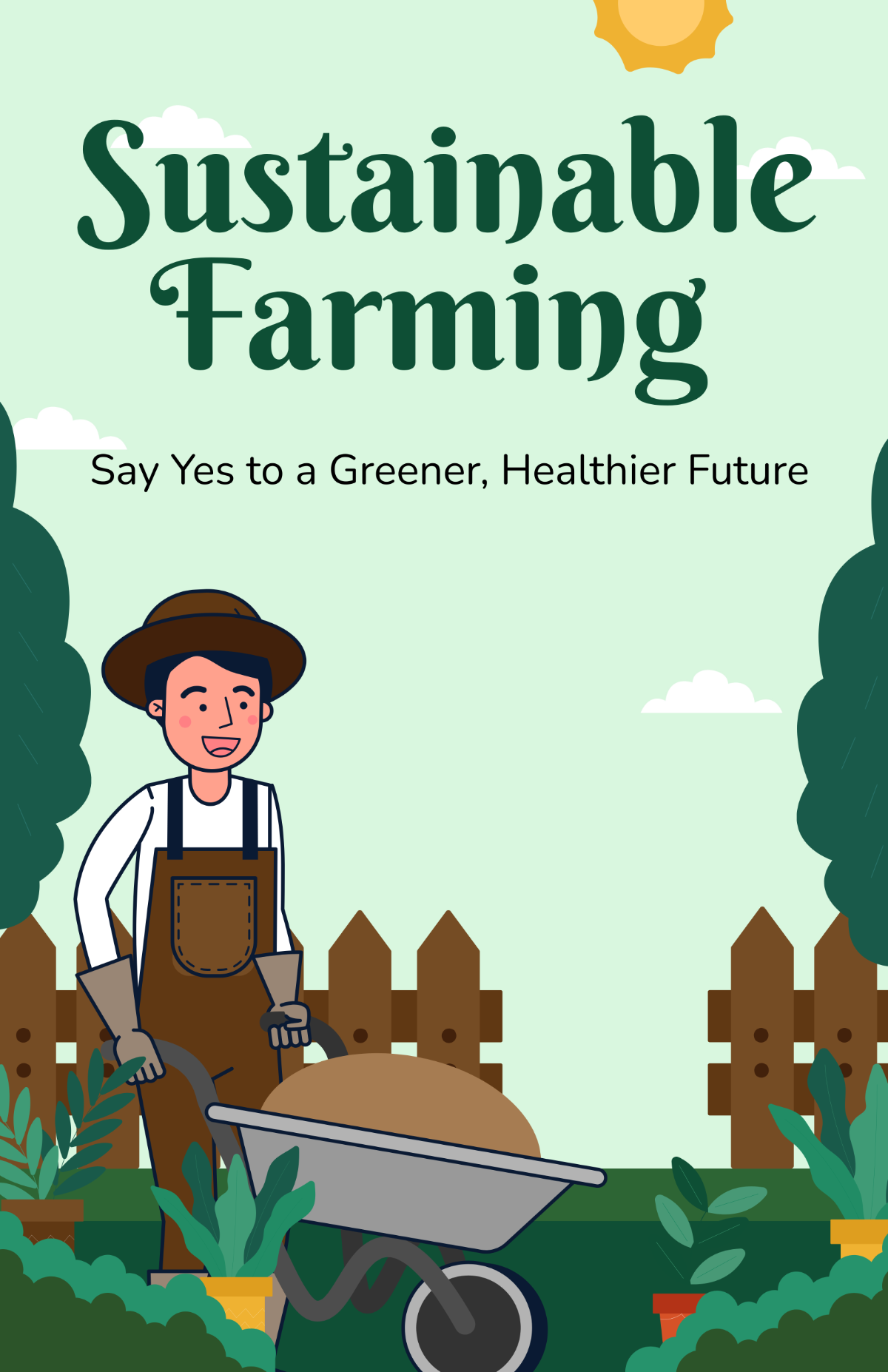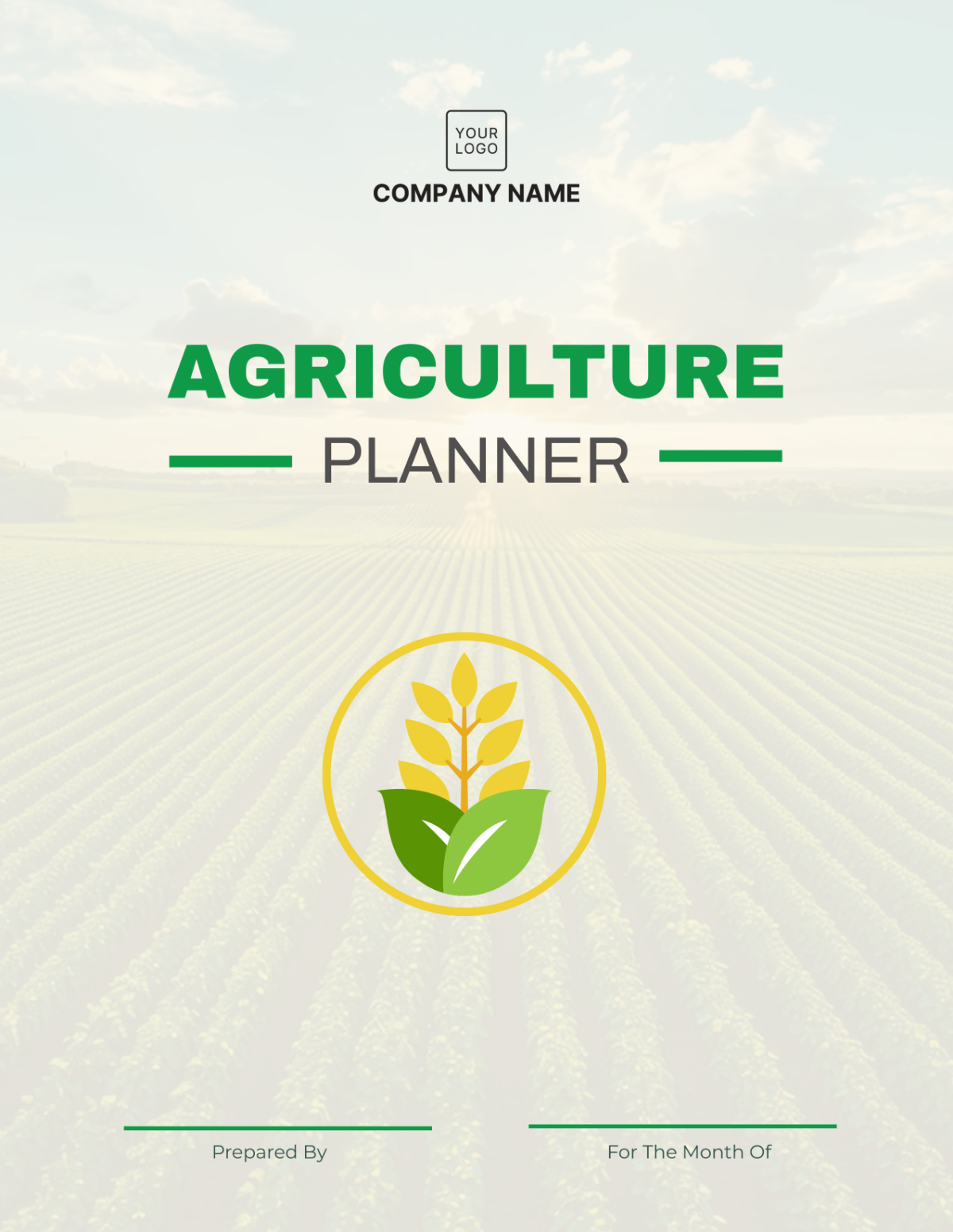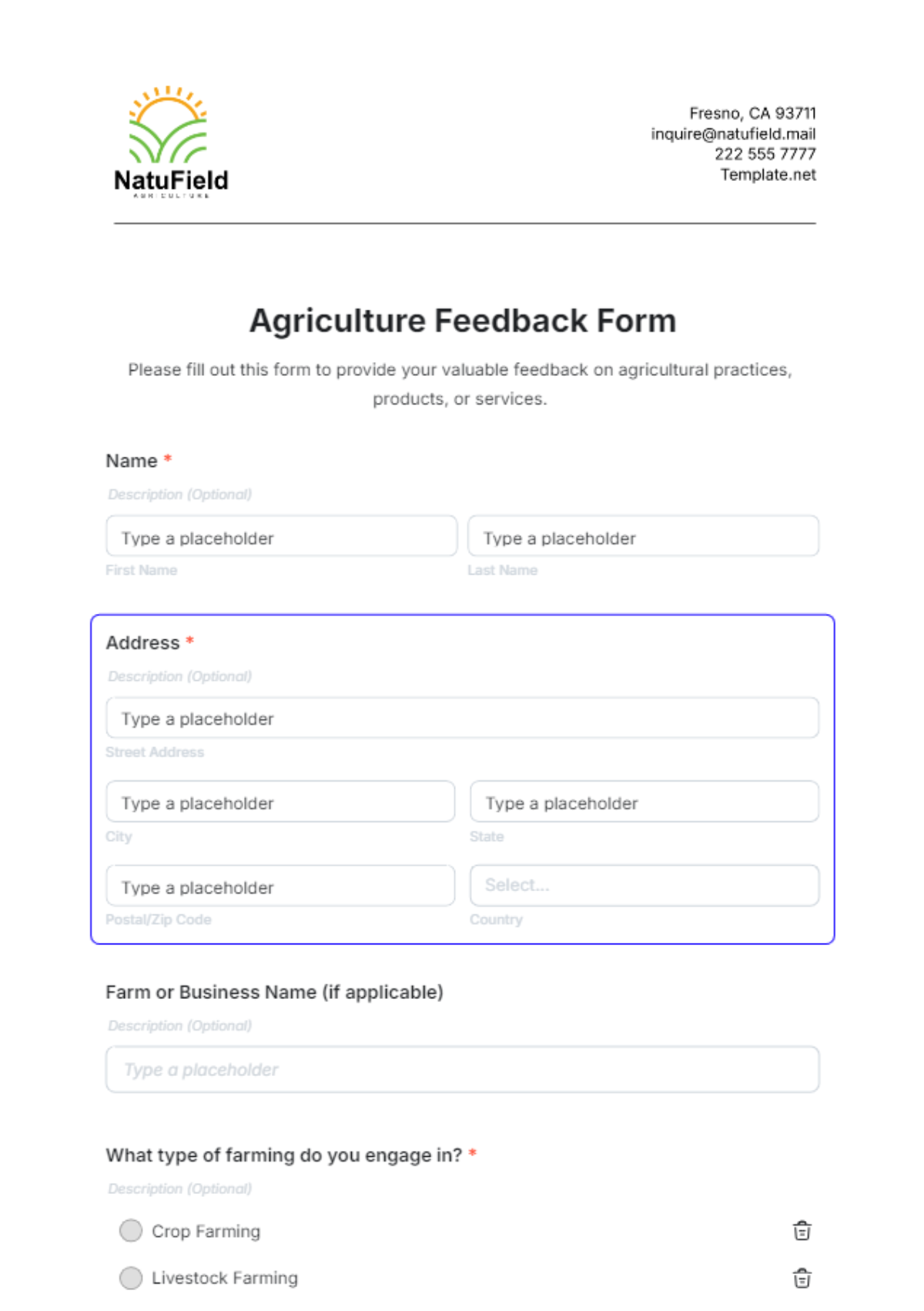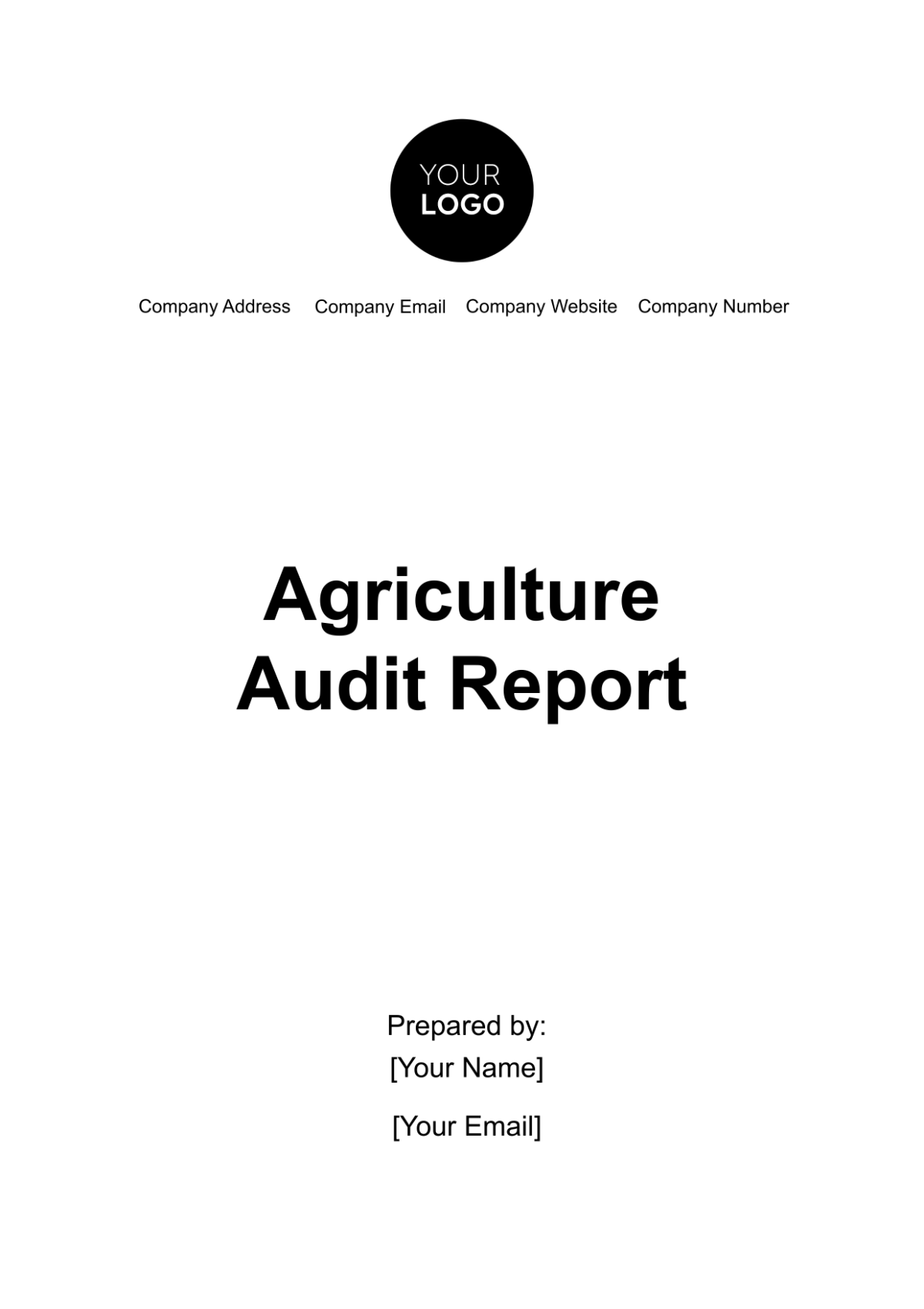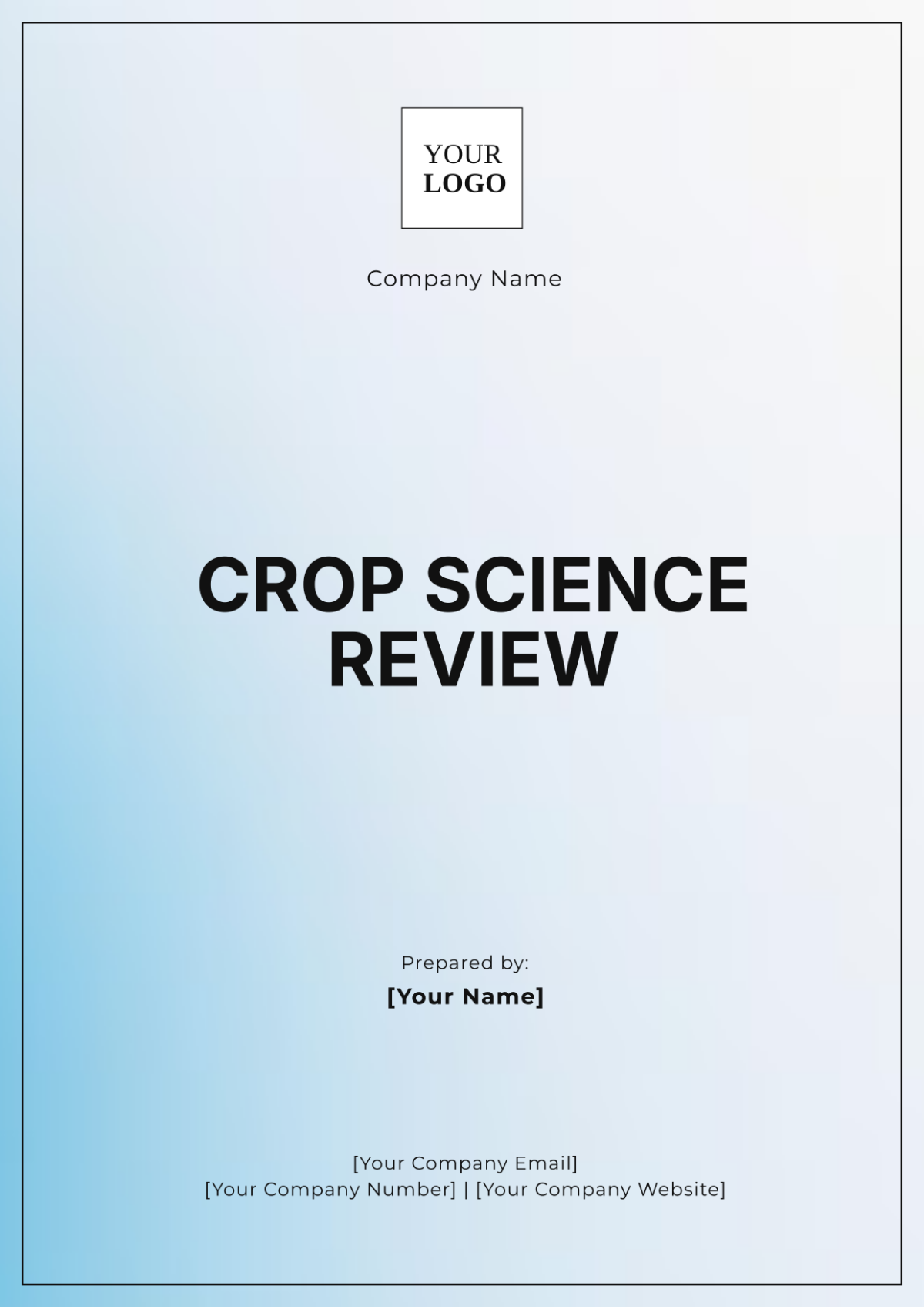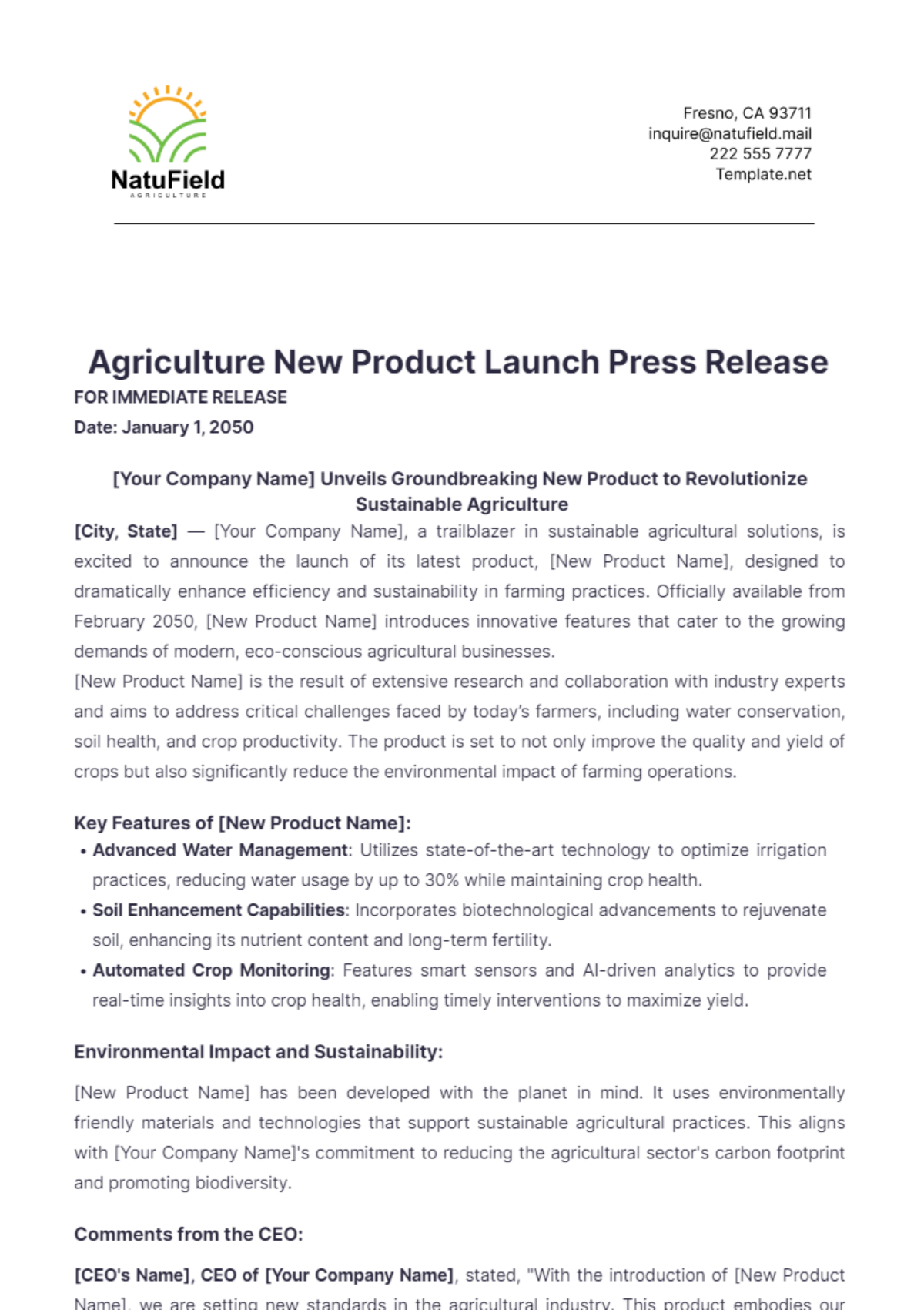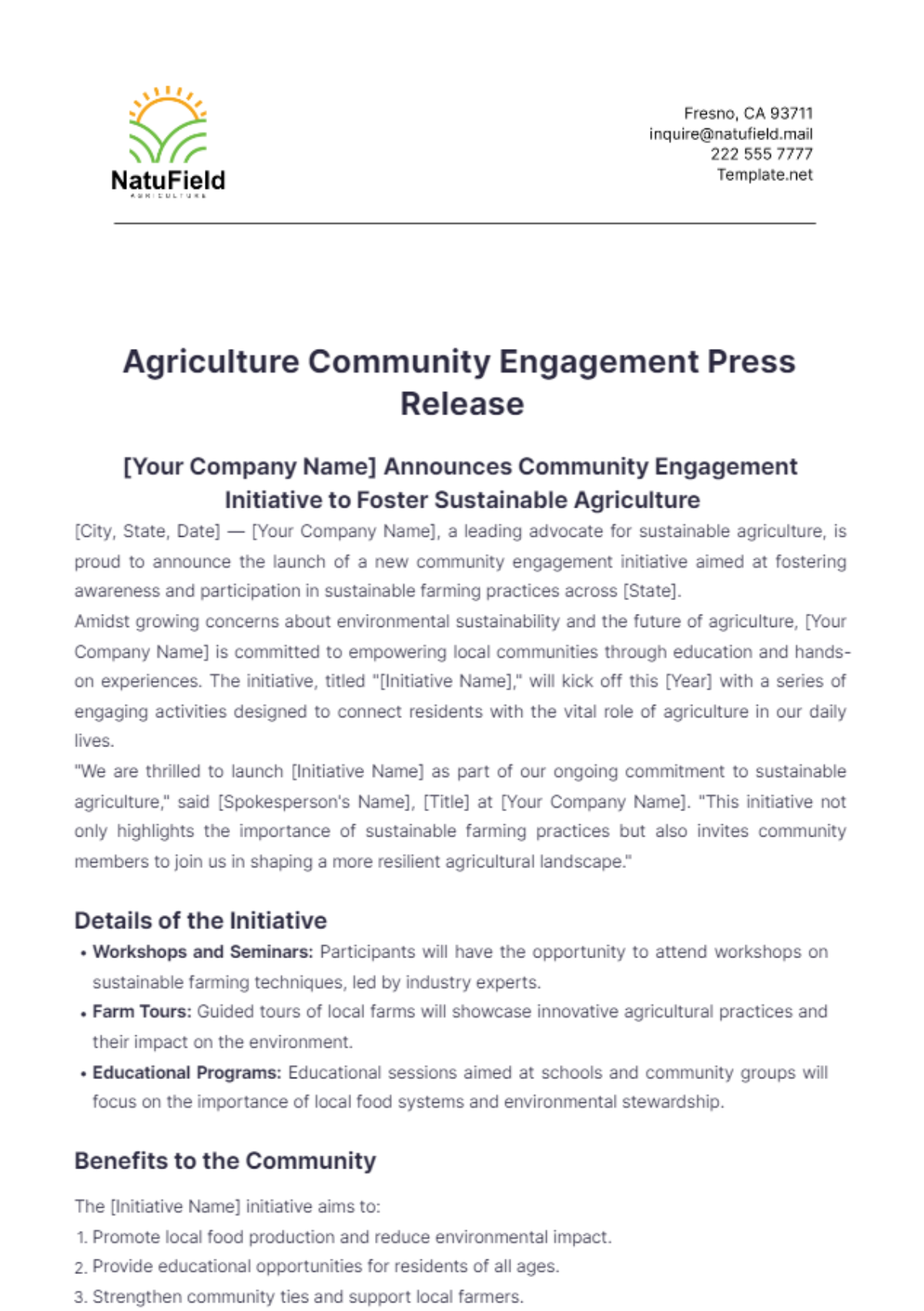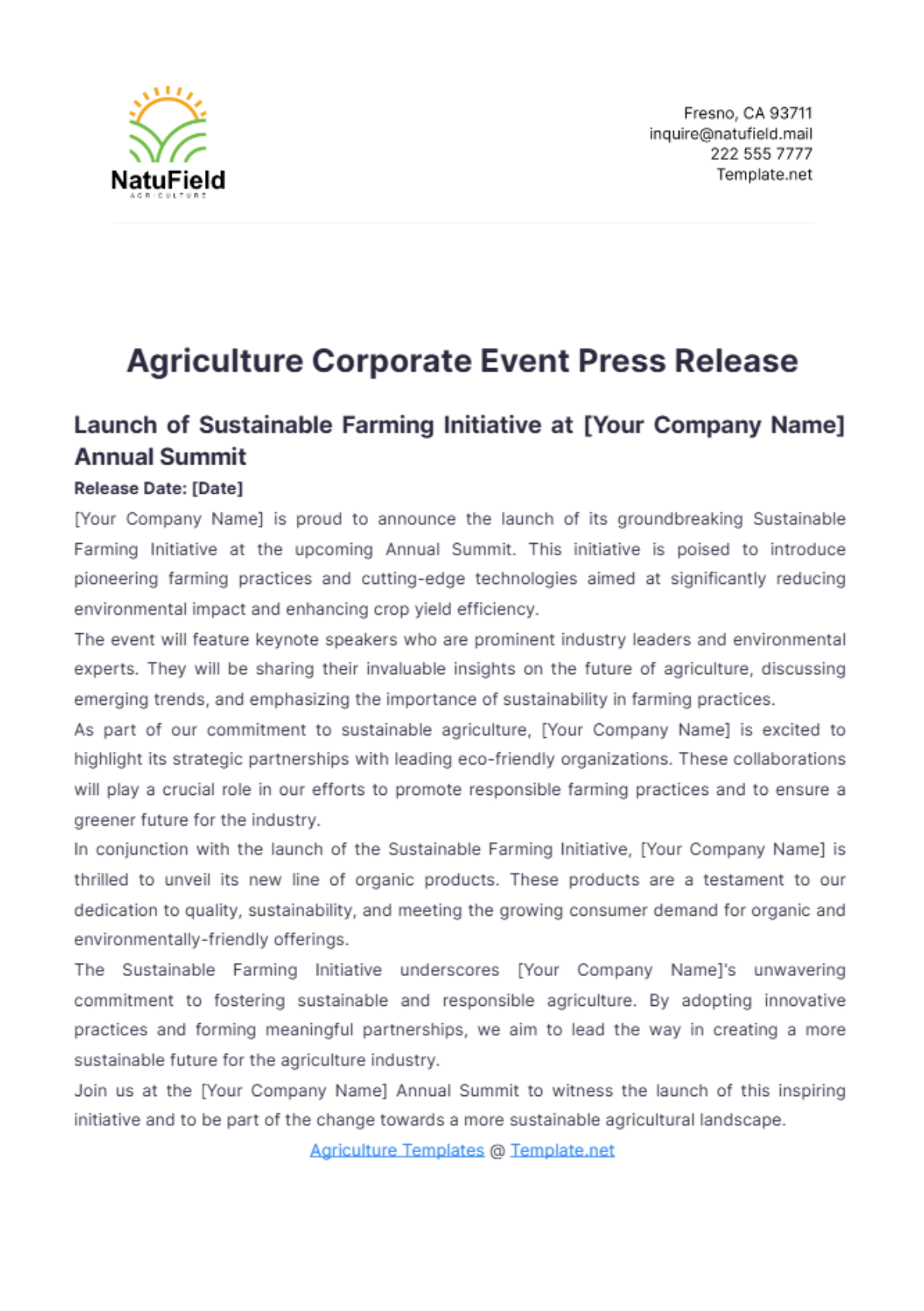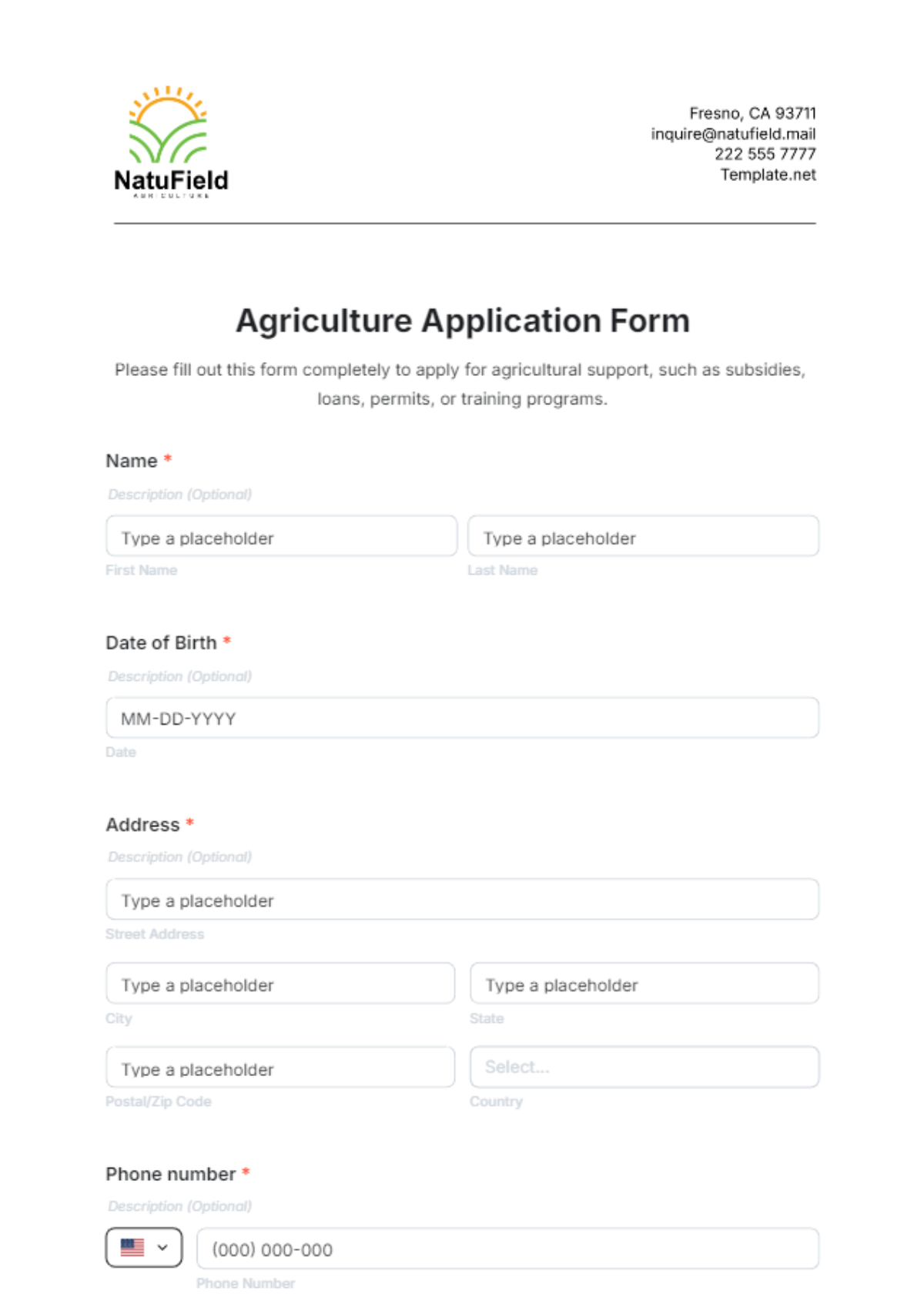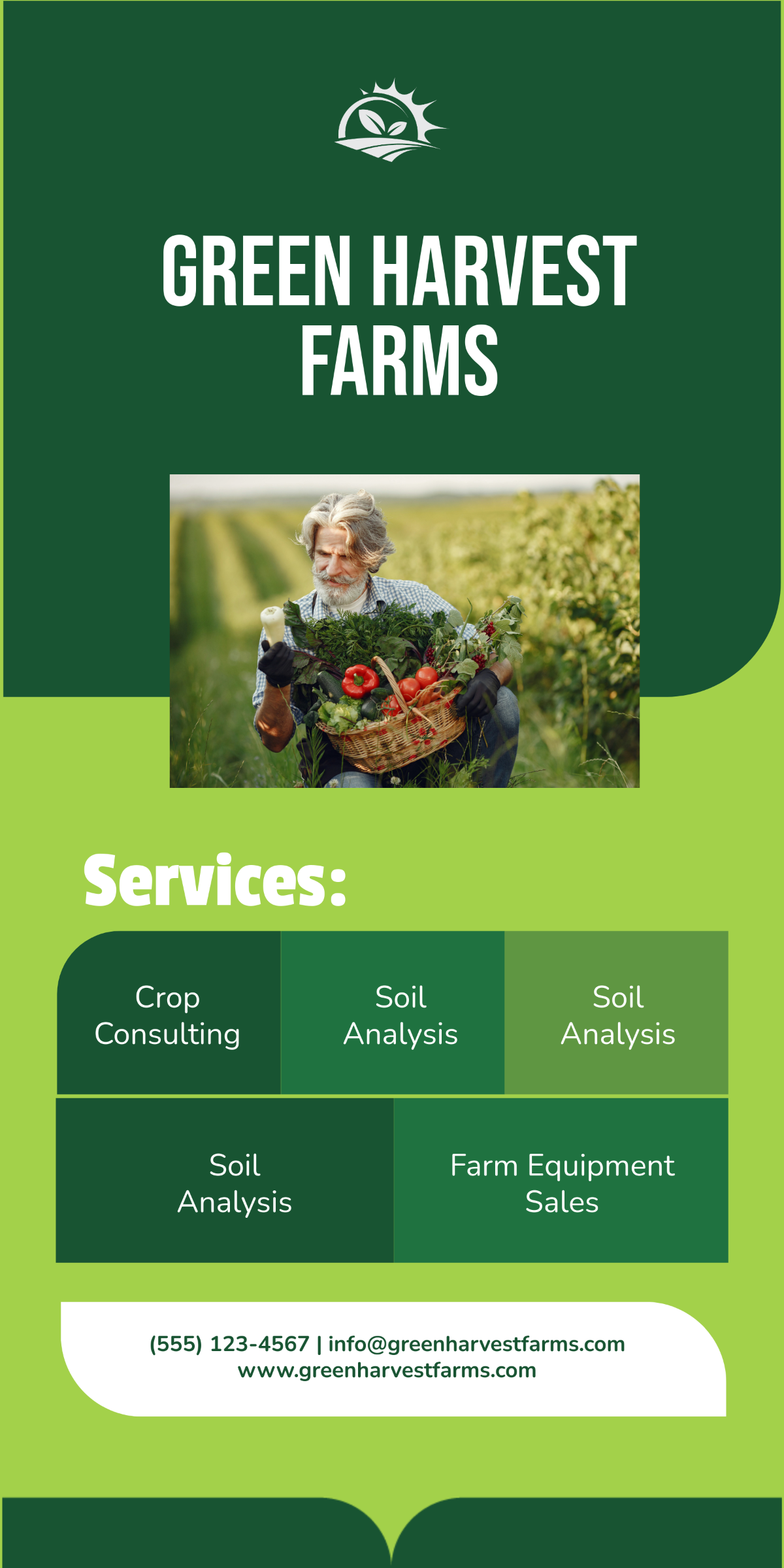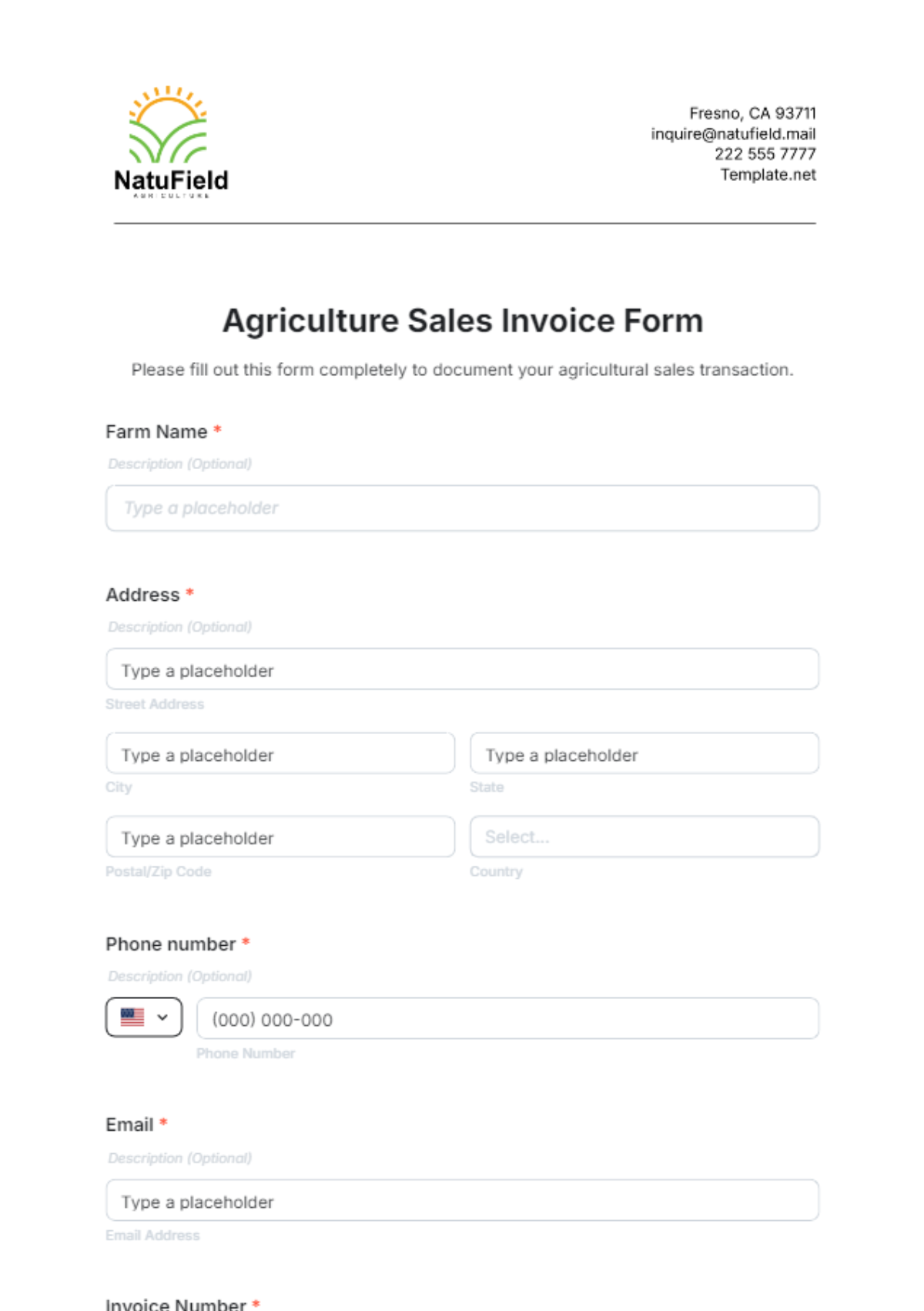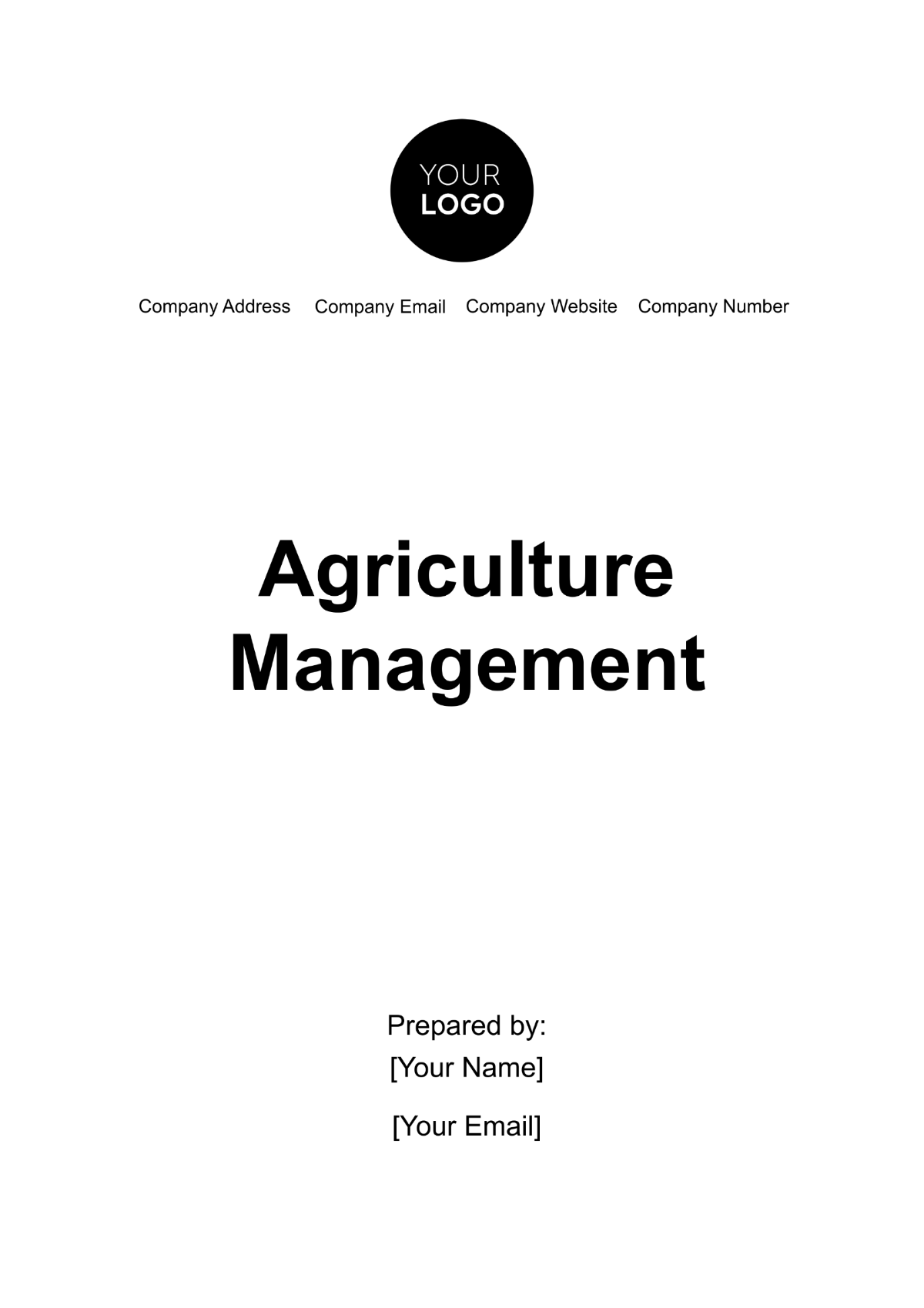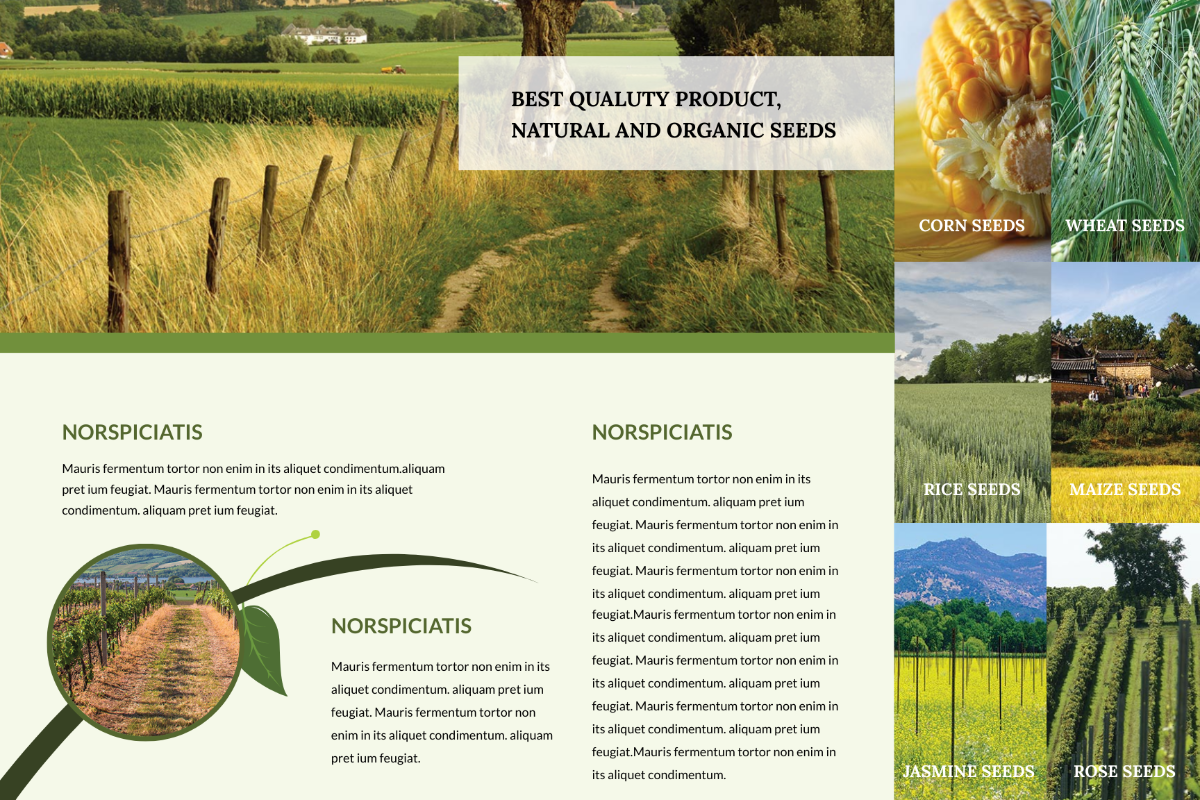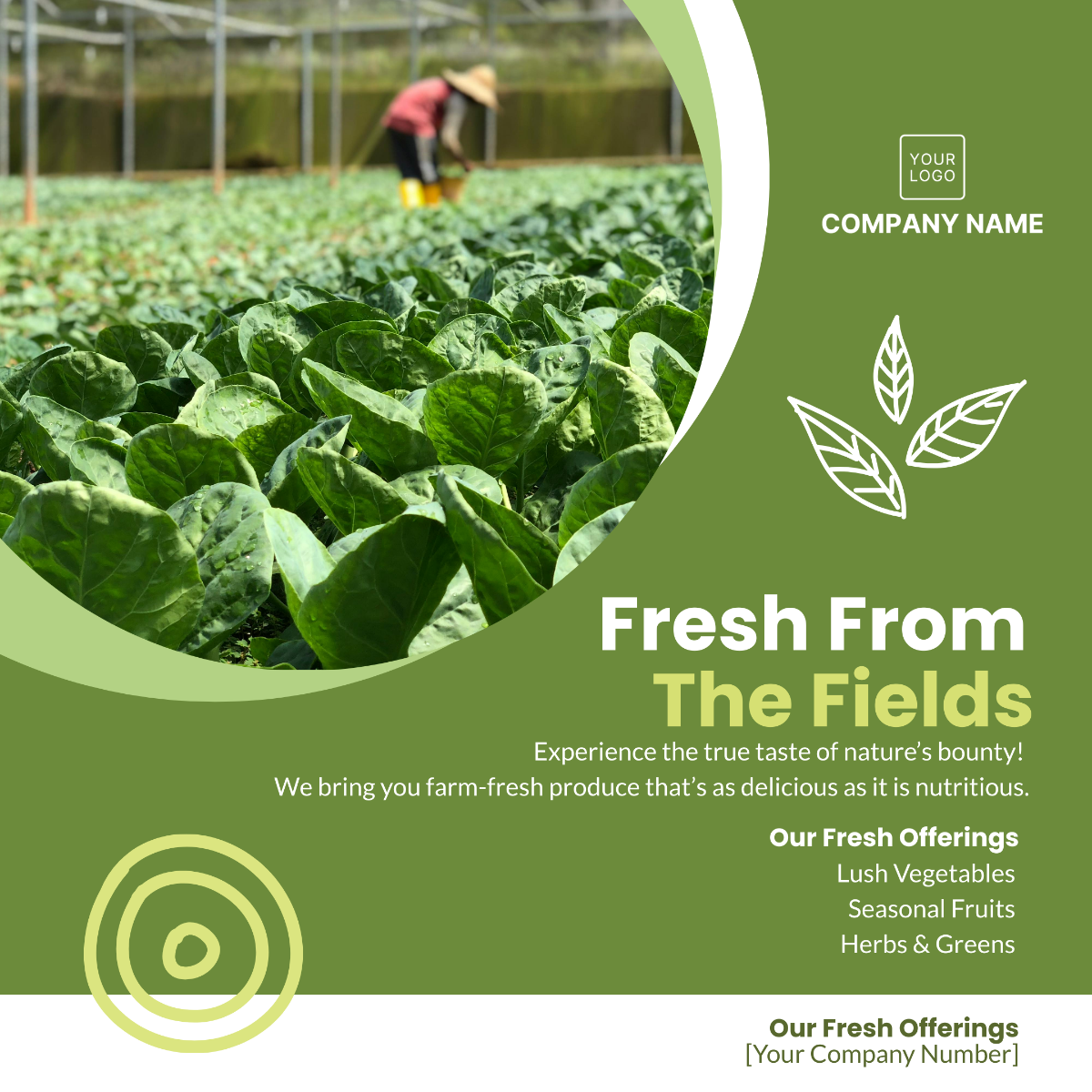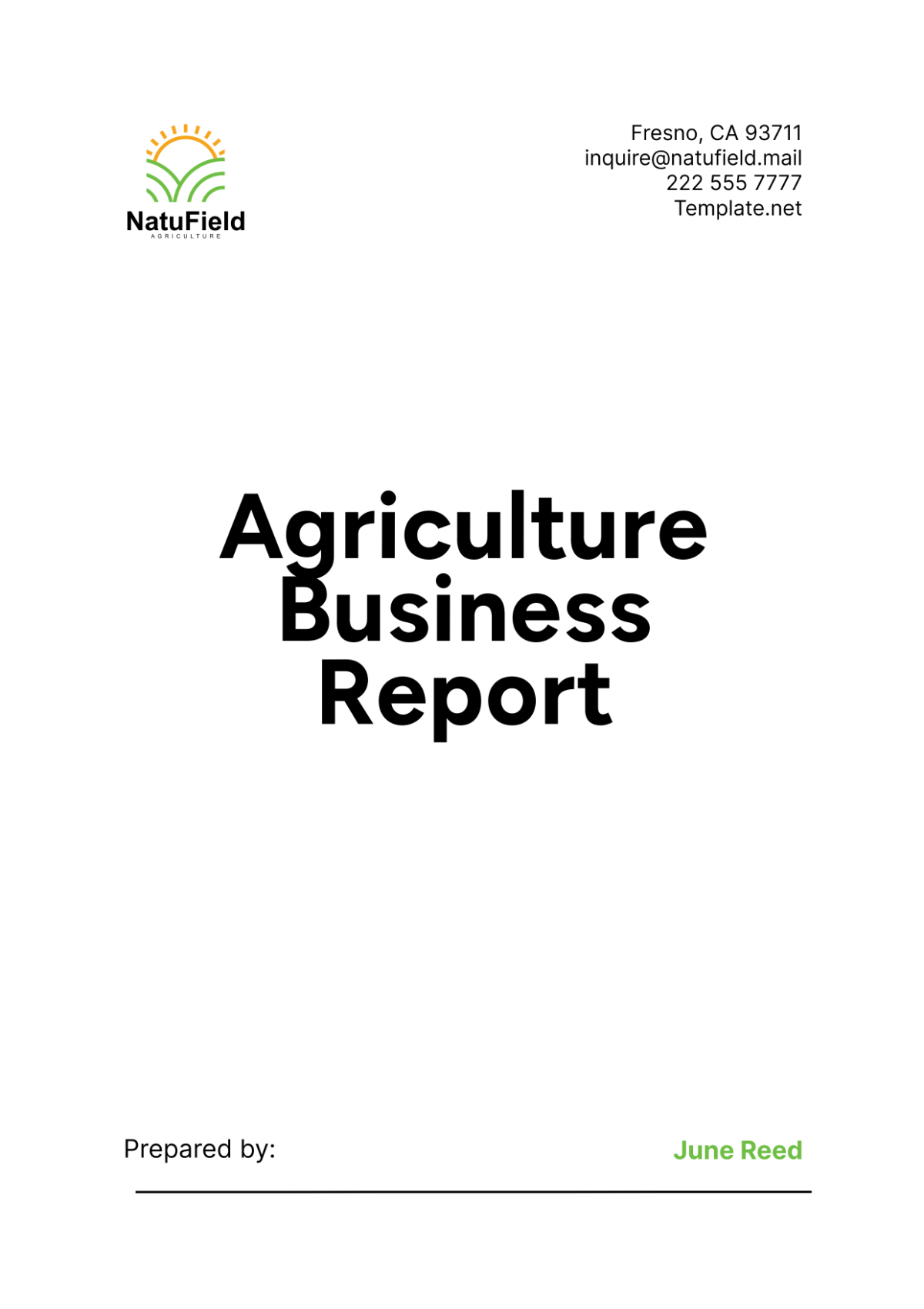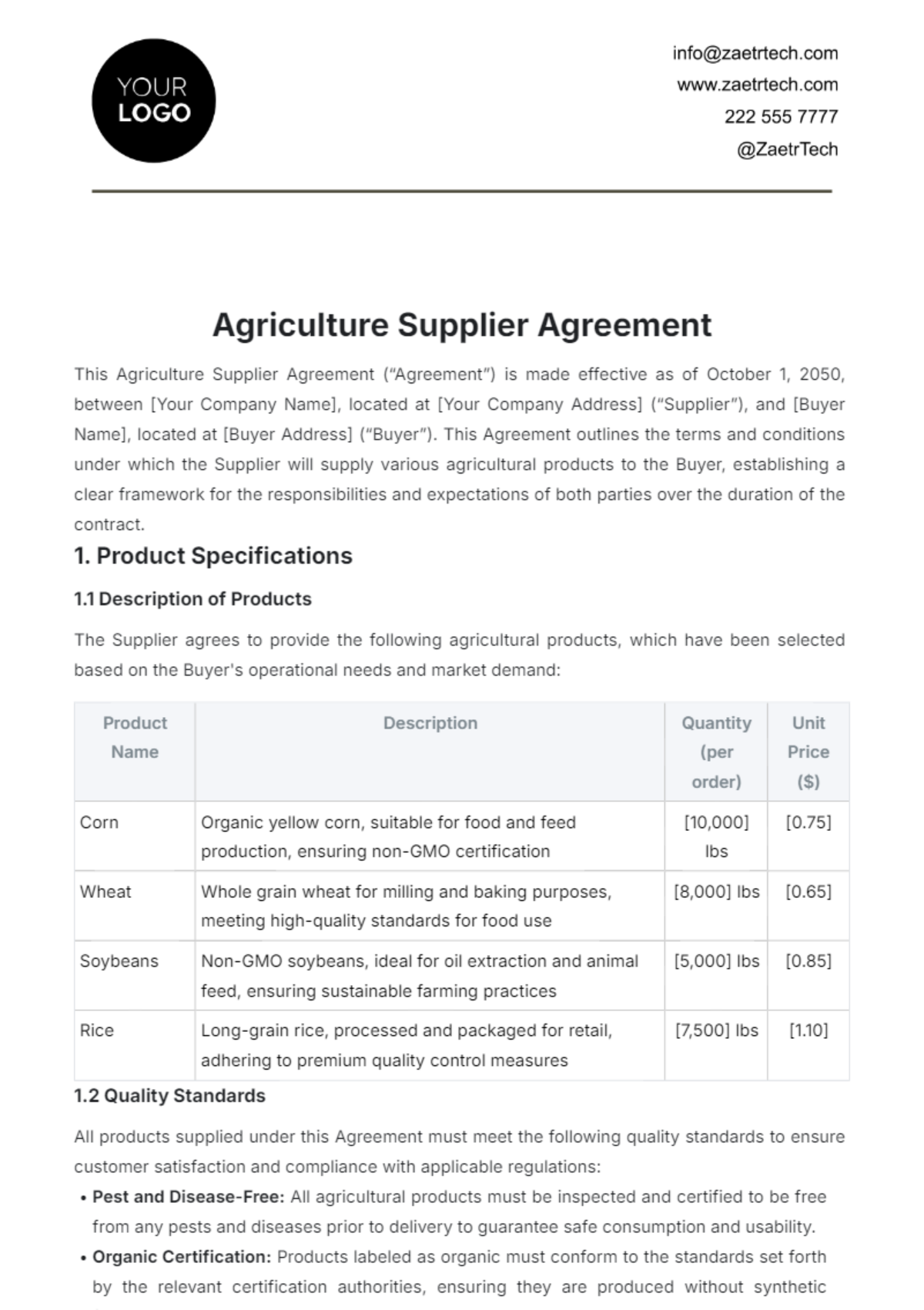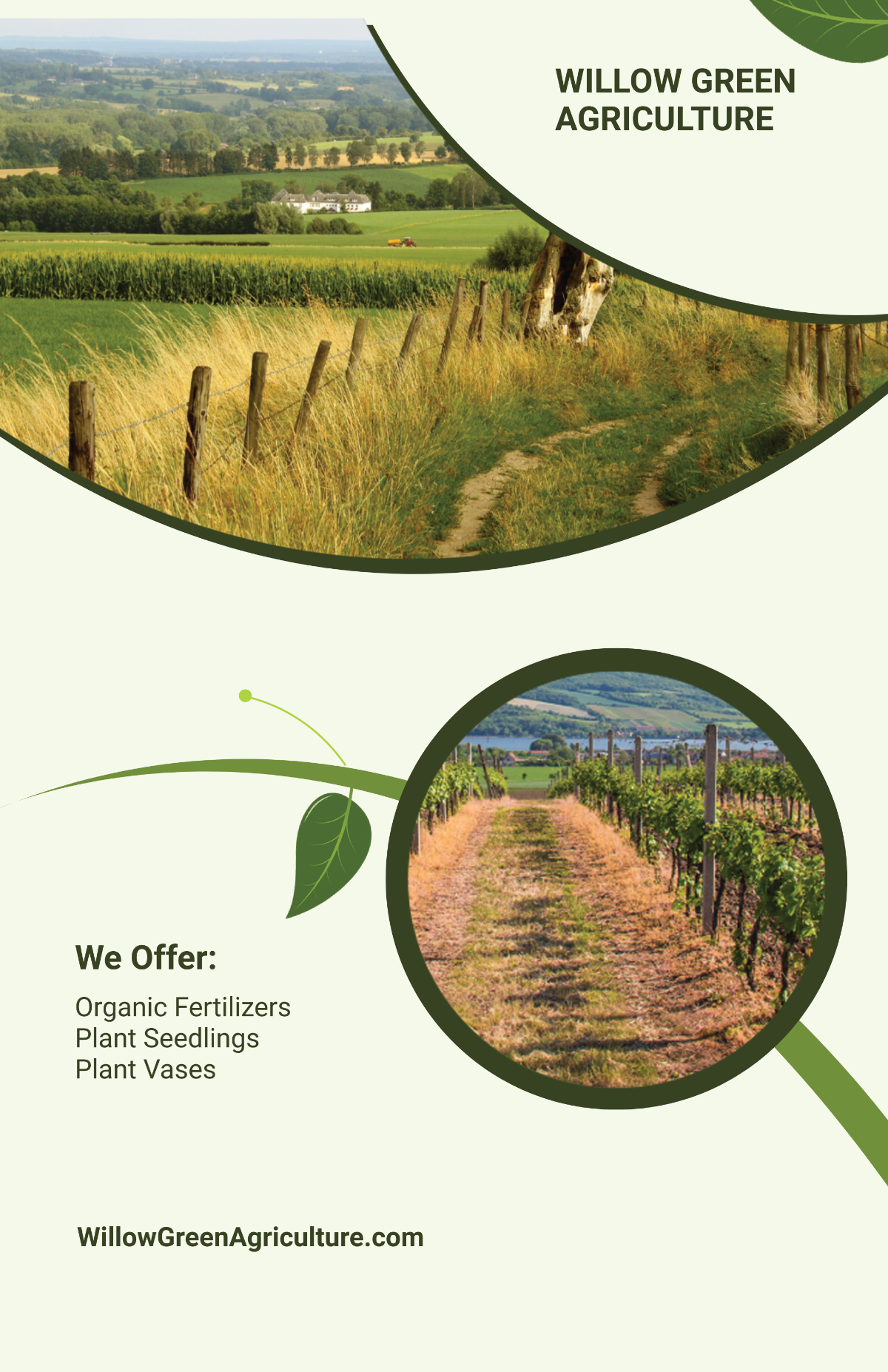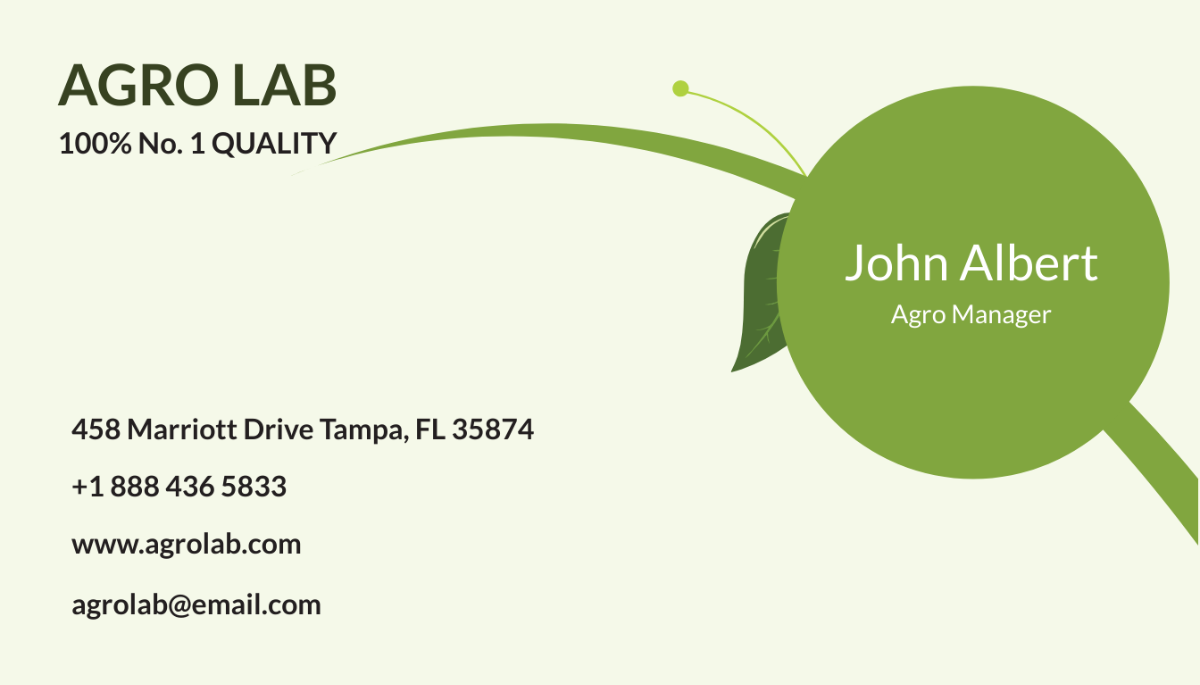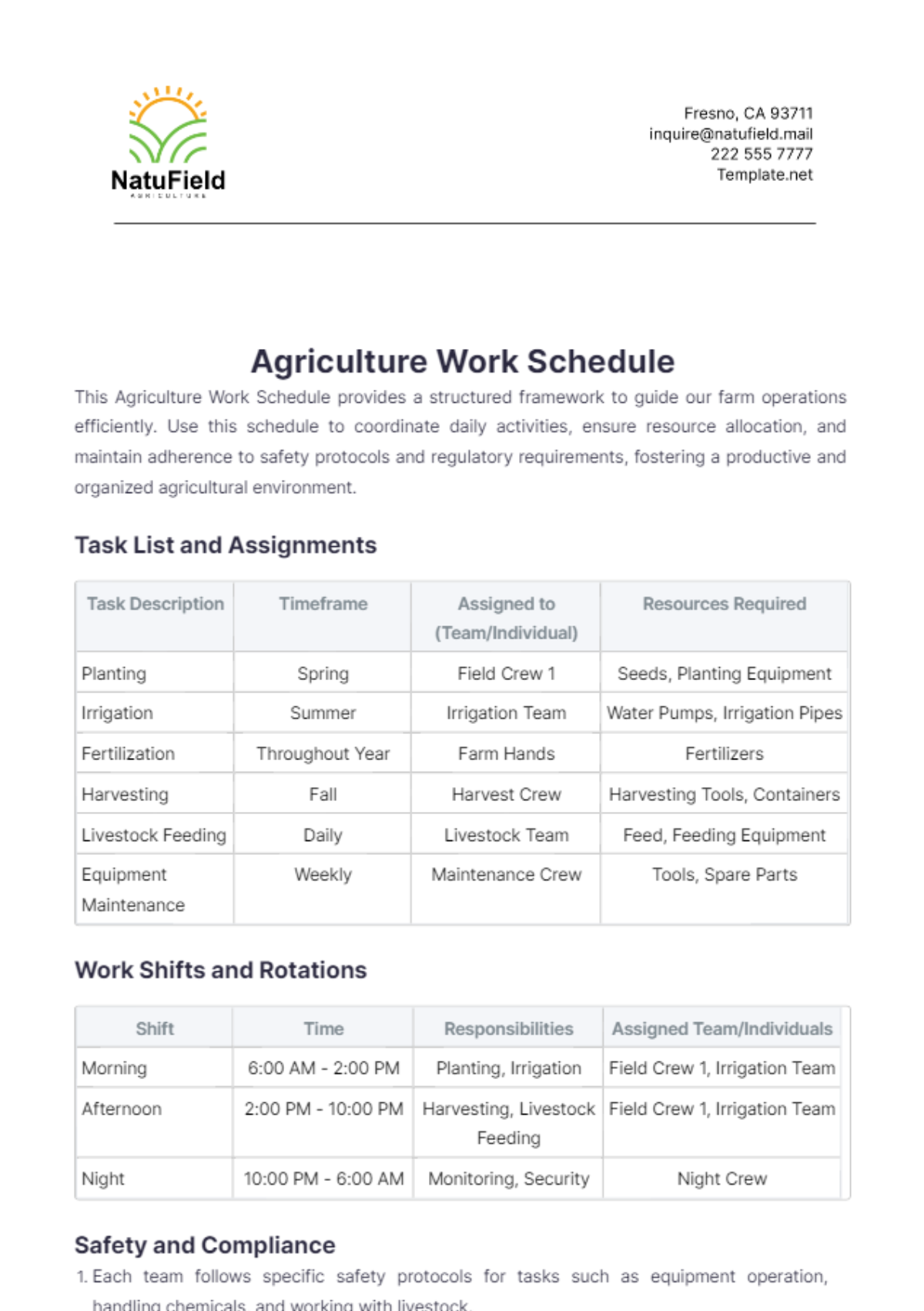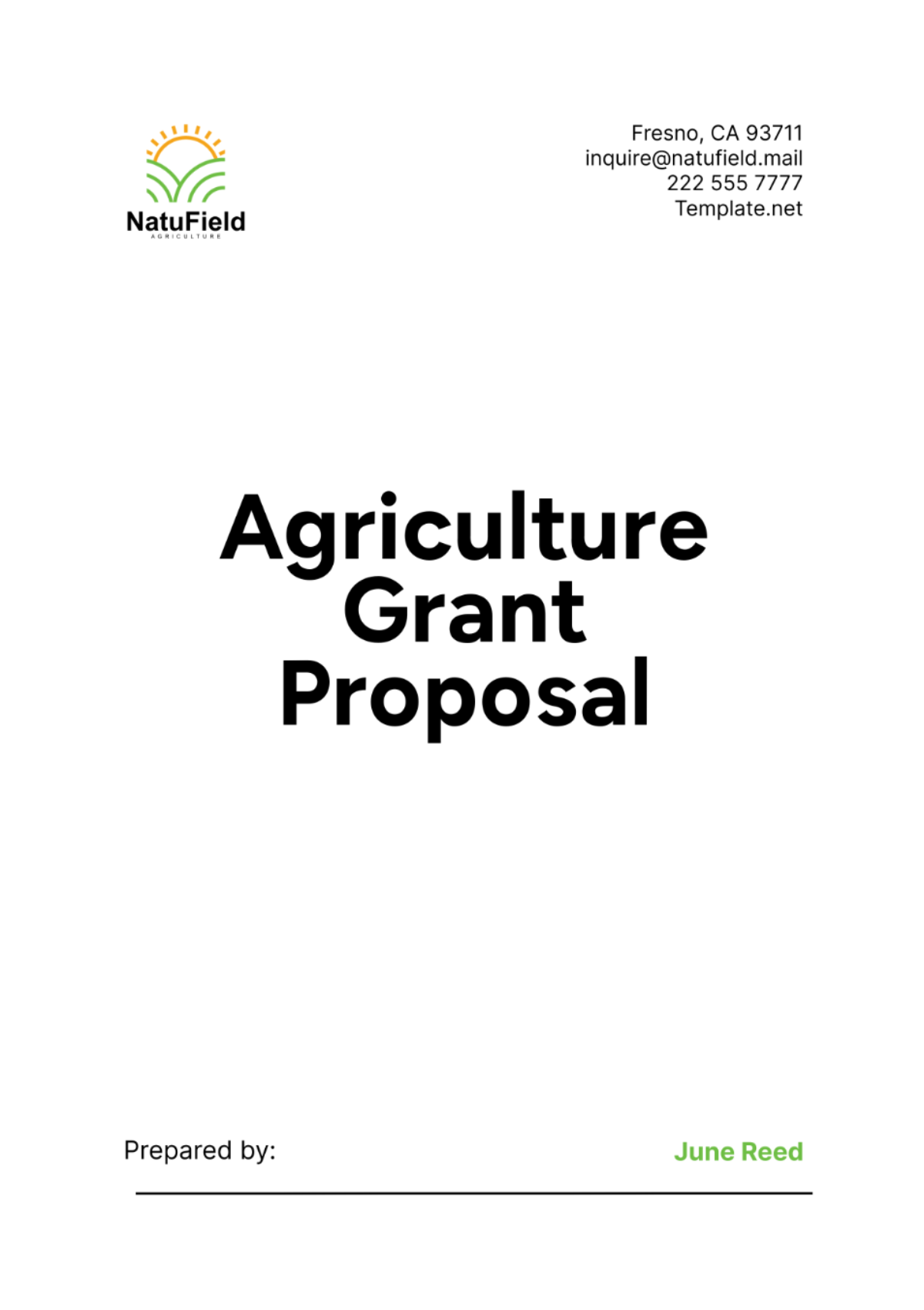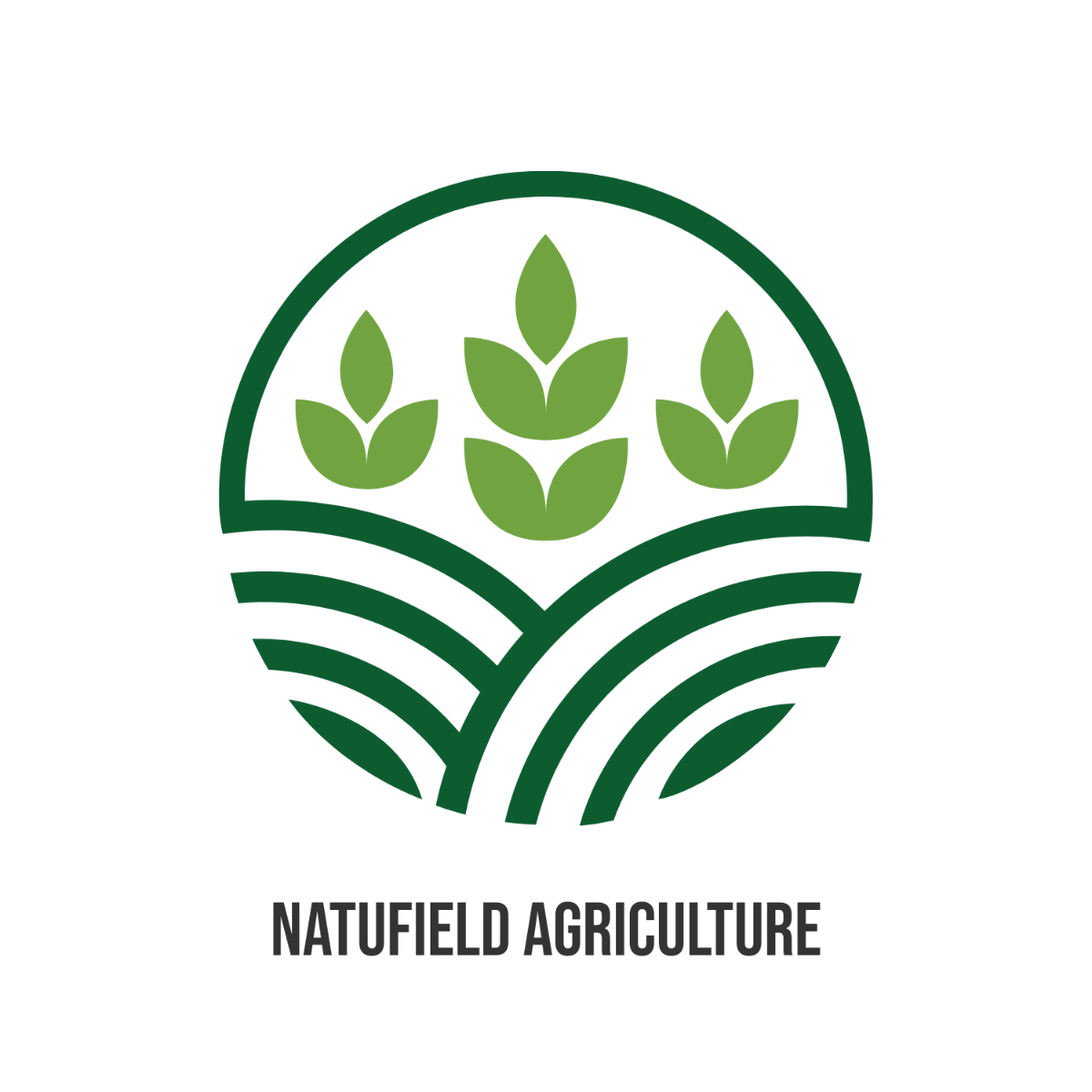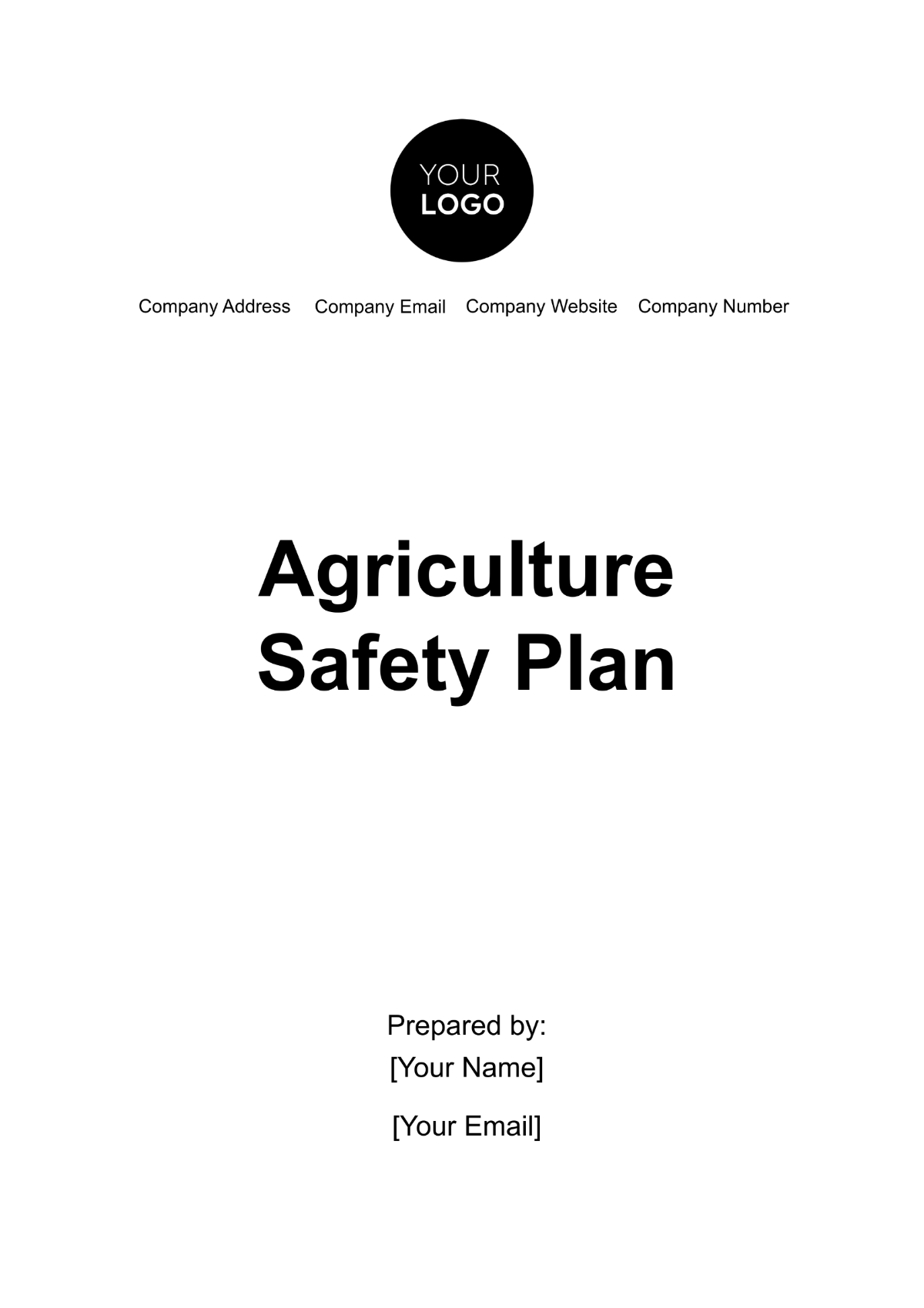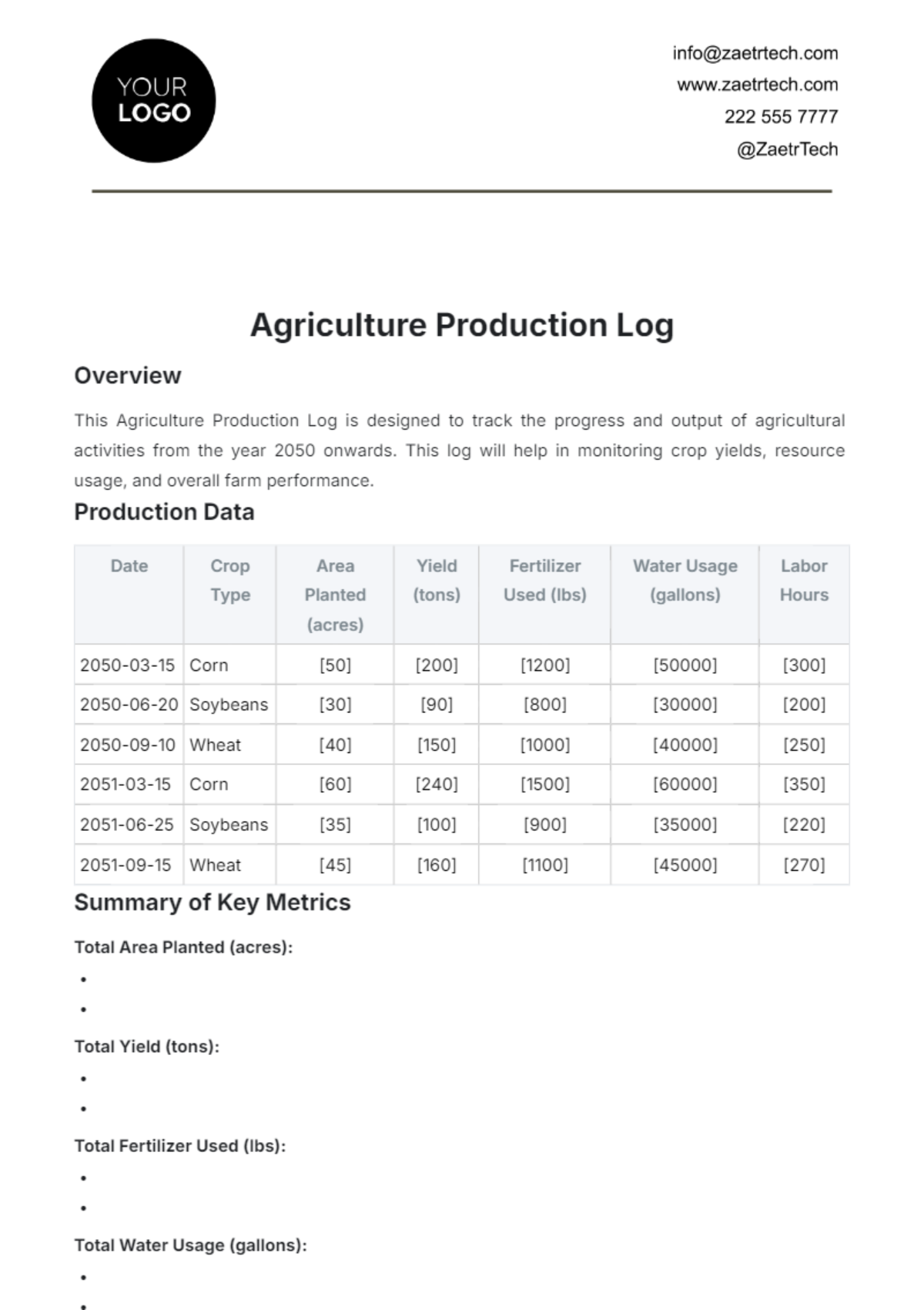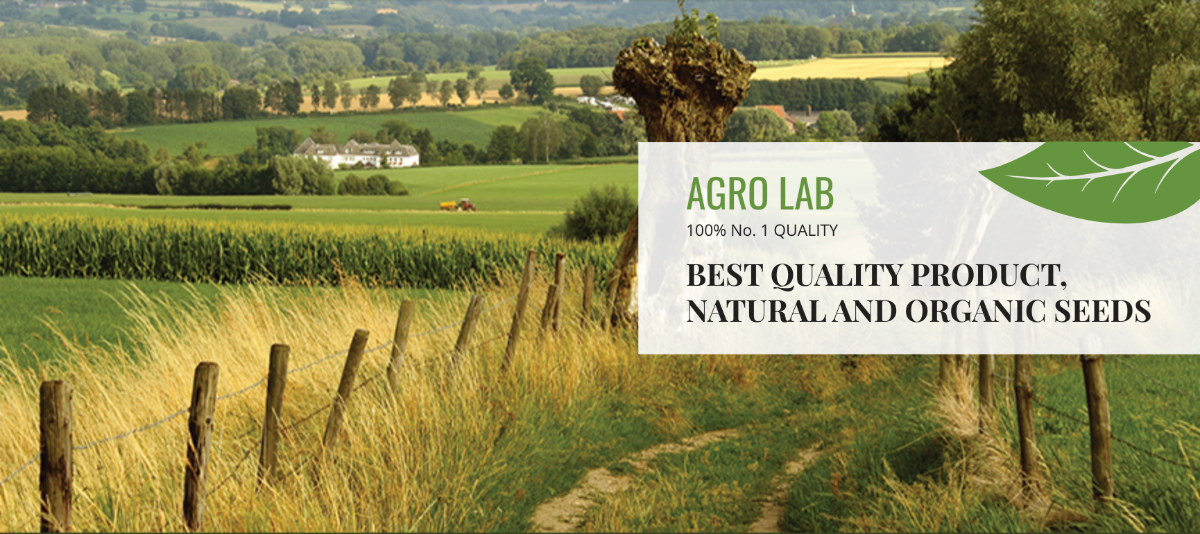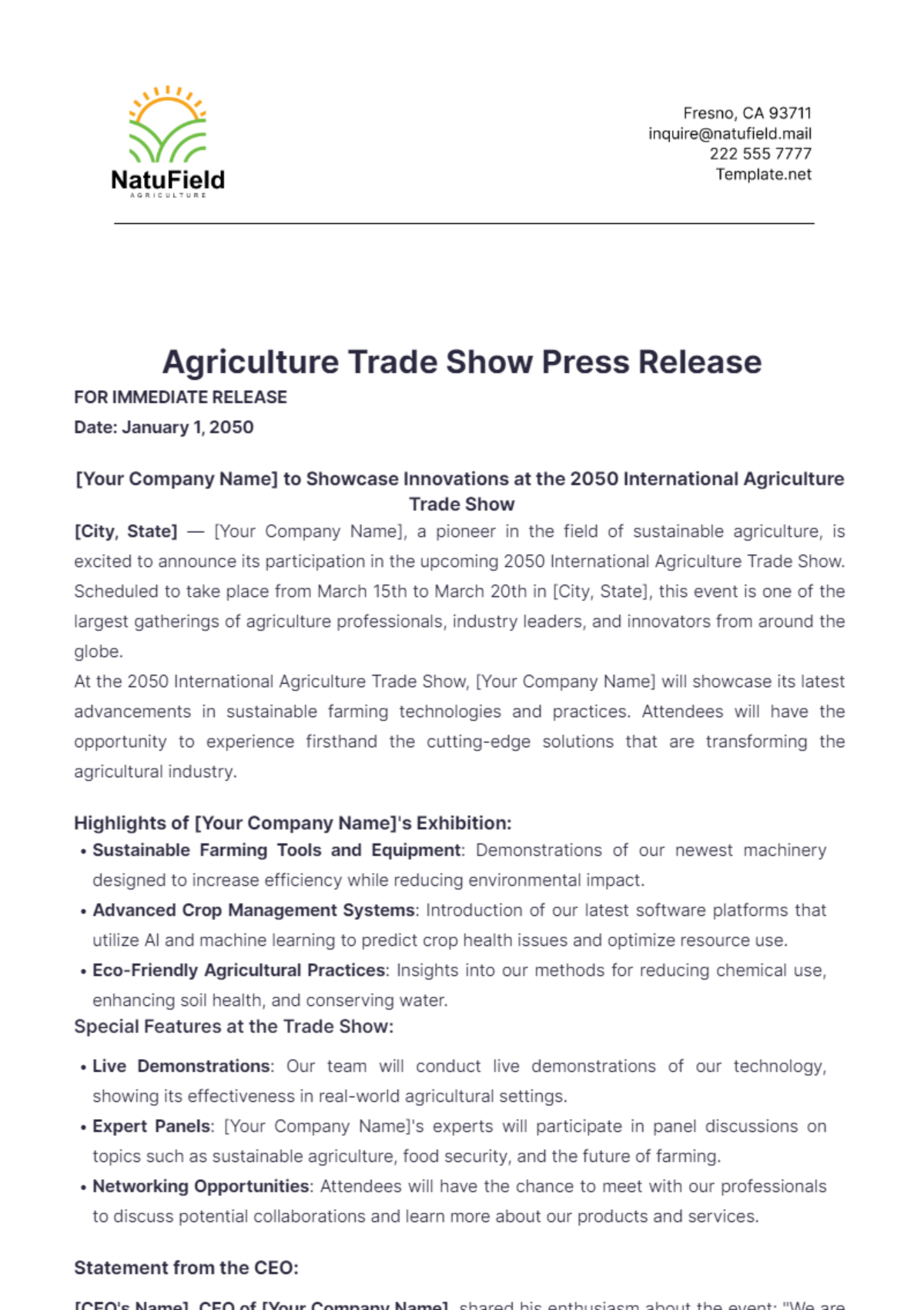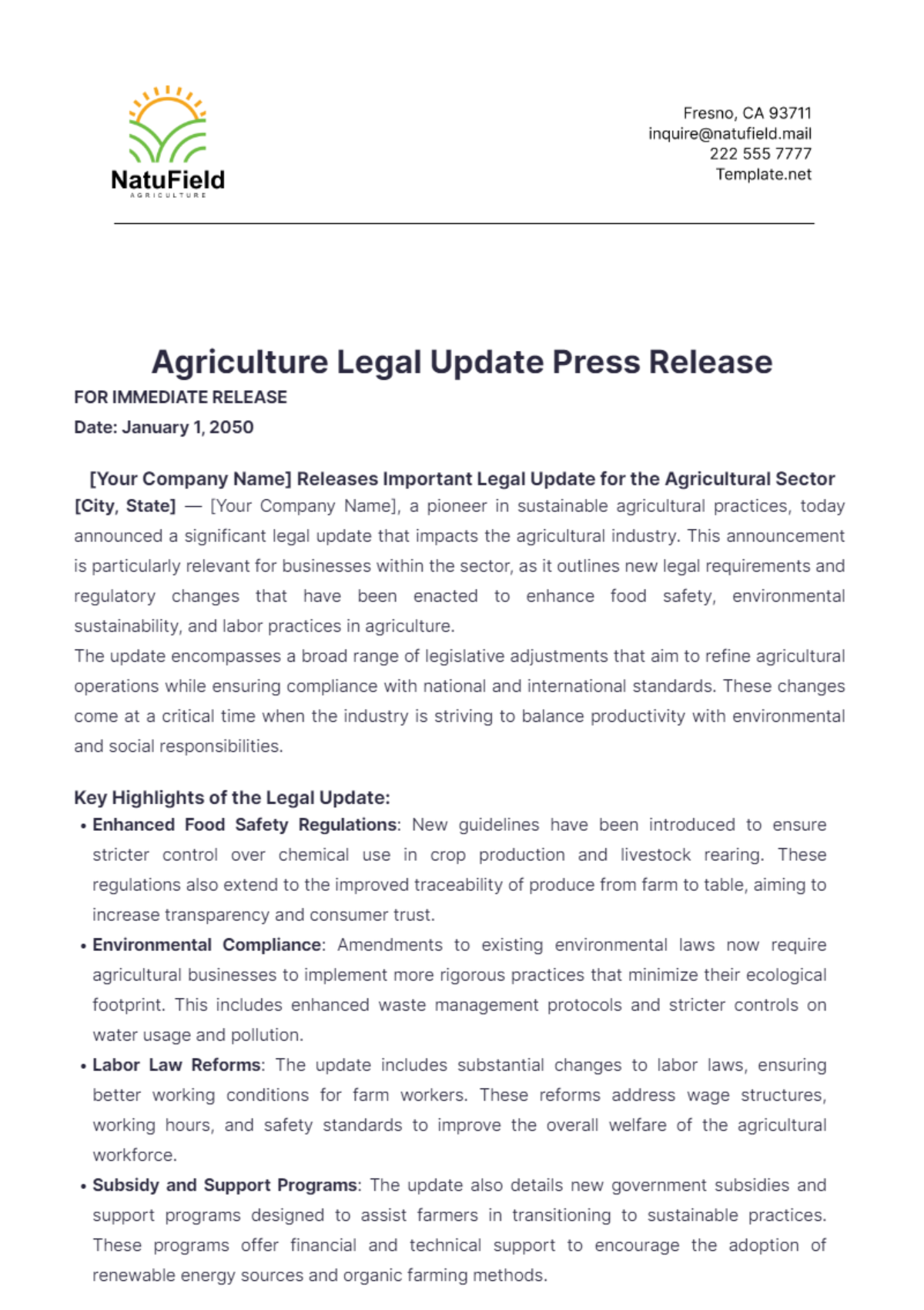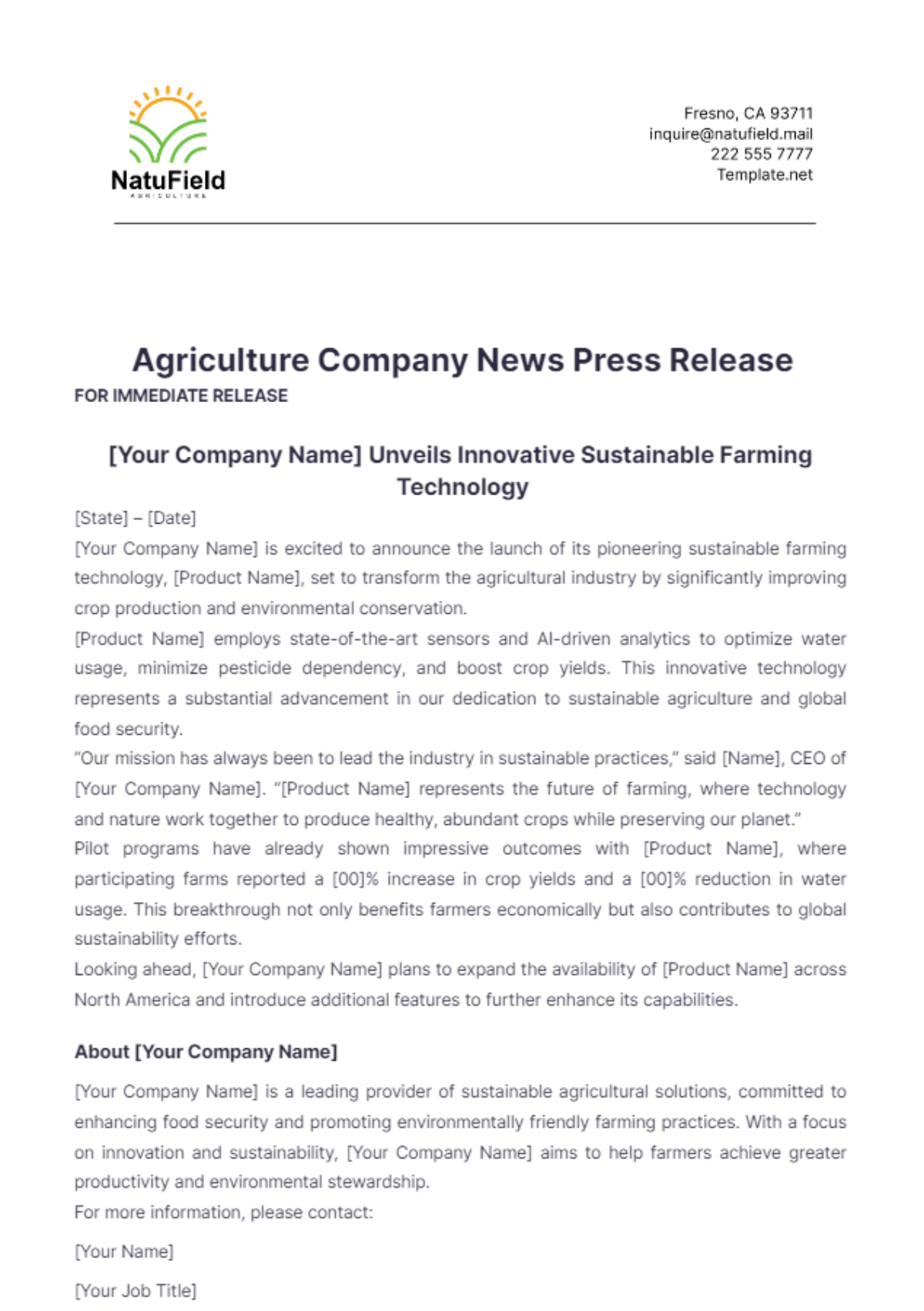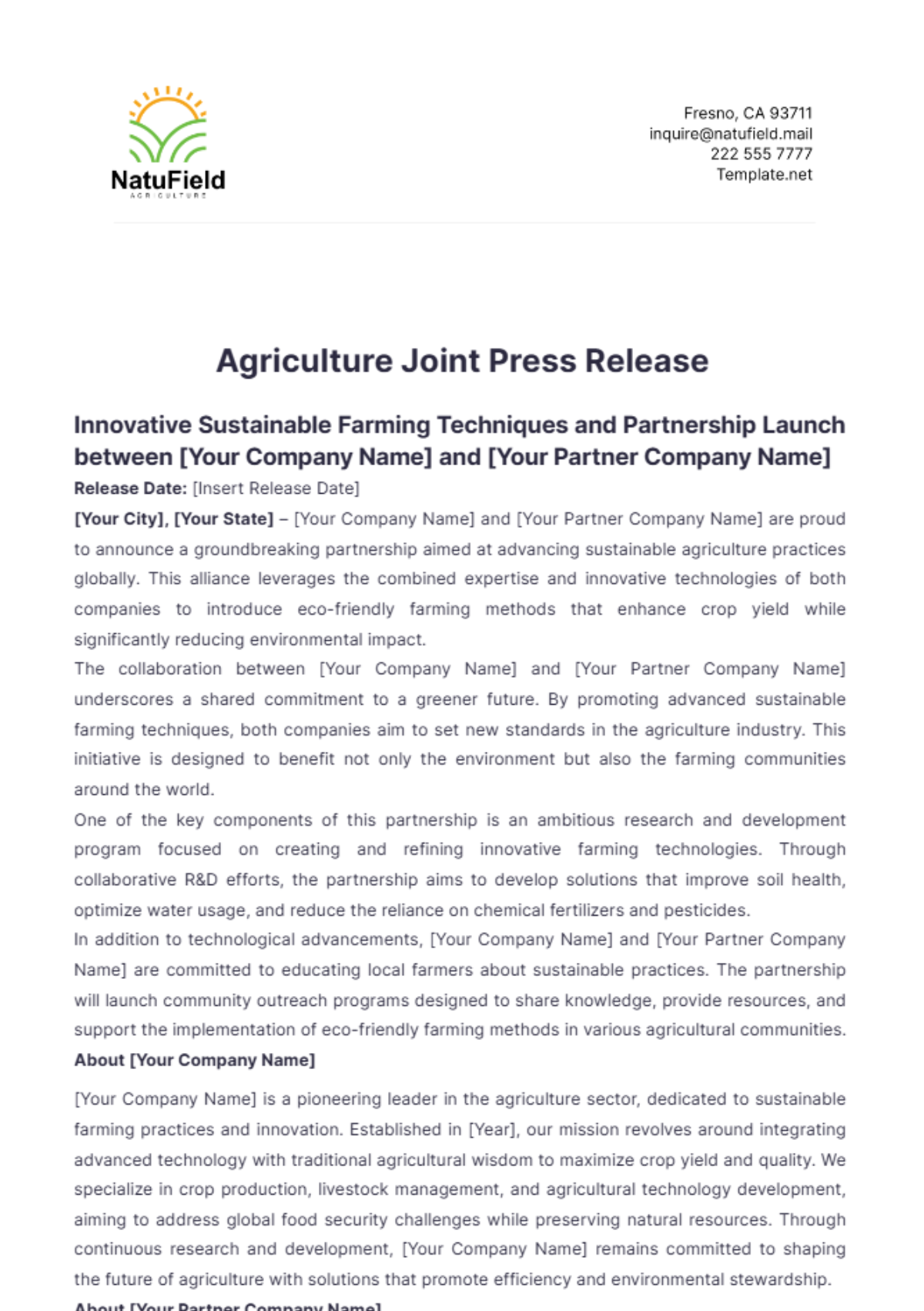Agriculture Guide
Sustainable Farming Practices
I. Introduction
Sustainable farming is a holistic approach to agriculture that seeks to meet society's growing demand for food, fiber, and other agricultural products while ensuring the long-term health of the environment. At [Your Company Name], we recognize the critical role of sustainable farming in addressing the challenges of climate change, soil degradation, and diminishing natural resources. This approach goes beyond the immediate production of crops and livestock by focusing on preserving natural ecosystems, maintaining biodiversity, and promoting practices that are both economically viable and environmentally friendly.
Key elements of sustainable farming include maintaining soil health through techniques such as crop rotation, cover cropping, and reduced tillage. These methods prevent soil erosion and nutrient loss, ensuring that future crops can be grown without the need for excessive chemical inputs. Additionally, conserving water through efficient irrigation systems and rainwater harvesting helps farmers use water resources more wisely. By adopting practices that reduce pollution, such as integrated pest management (IPM) and organic farming, [Your Company Name] is committed to supporting farmers in reducing their carbon footprint while producing high-quality crops and livestock for current and future generations. Sustainable farming is not just a method—it's a responsibility that ensures the resilience of our food systems.
II. Steps for Implementing Sustainable Farming Practices
Implementing sustainable farming practices is essential for maintaining the long-term health of the environment, while also ensuring productive and profitable agriculture. At [Your Company Name], we guide farmers through a series of steps that focus on optimizing soil health, conserving water, and managing pests with minimal environmental impact. These strategies not only enhance crop yields but also reduce the reliance on chemical inputs, decrease water consumption, and create a balanced ecosystem. The following steps outline practical, proven methods that every farmer can adopt to transition toward a more sustainable and resilient agricultural operation.
1. Soil Management
Assess Soil Health: Regularly test soil to determine nutrient levels and pH balance.
Use Organic Fertilizers: Utilize compost and manure to enrich the soil naturally.
Implement Crop Rotation: Rotate crops to prevent soil exhaustion and pest buildup.
Adopt No-Till Farming: Reduce soil erosion by minimizing plowing.
2. Water Conservation
Install Drip Irrigation: Conserve water by directing it to plant roots.
Collect Rainwater: Use rain barrels or cisterns to capture and store rainwater for irrigation.
Mulching: Apply mulch to soil to retain moisture and reduce evaporation.
3. Integrated Pest Management (IPM)
Monitor Pests: Regularly inspect crops for pest activity.
Identify Pests: Determine which pests are present and in what numbers.
Implement Control Measures: Use biological control (natural predators), mechanical control (traps), and chemical control (pesticides) as needed.
Evaluate Effectiveness: Review control measures and adjust as necessary.
III. Best Practices for Sustainable Farming
To effectively achieve sustainable farming, it is essential to adopt practices that promote long-term environmental health, economic viability, and social responsibility. At [Your Company Name], we encourage the following best practices to help farmers transition to more sustainable methods:
A. Enhance Biodiversity
Biodiversity is the cornerstone of a resilient farming system. By planting a variety of crops and integrating natural habitats such as hedgerows, forests, or ponds within the farm, you promote a balance of ecosystems. Crop diversification can help mitigate the risks posed by pests and diseases, while natural habitats support beneficial wildlife like pollinators and predators that control pests. This approach reduces the reliance on synthetic pesticides, enhancing both farm productivity and ecosystem health.
B. Conserve Resources
Sustainable farming requires the careful management of resources to prevent depletion. Farmers should prioritize the use of renewable resources such as solar energy and implement strategies like rainwater harvesting to conserve water. Recycling farm waste—composting organic material, reusing crop residues, and converting animal manure into fertilizer—minimizes waste while enriching the soil. By adopting these practices, farmers reduce their environmental impact and increase resource efficiency.
C. Reduce Greenhouse Gas Emissions
Agriculture contributes to greenhouse gas emissions, but adopting sustainable practices can significantly reduce this impact. Reduced tillage techniques minimize soil disruption, which in turn prevents carbon loss and maintains soil structure. Implementing efficient fertilizer use, such as precision application and organic alternatives, further decreases nitrous oxide emissions, a potent greenhouse gas. These practices not only reduce the farm’s carbon footprint but also improve soil health and crop yields over time.
D. Support Local Economies
Sustainability is not just about environmental stewardship—it also encompasses economic resilience. Farmers can support local economies by sourcing supplies locally, thereby reducing transportation-related emissions and costs. Participating in community-supported agriculture (CSA) programs fosters direct relationships between farmers and consumers, ensuring that food is grown, sold, and consumed within the same region. This approach strengthens community bonds and boosts the local agricultural economy, while offering consumers fresh, sustainably grown products.
IV. Crop Rotation Plan
Crop rotation is an essential practice in sustainable farming that improves soil health, prevents pest and disease buildup, and enhances crop yields. Rotating crops across different fields ensures that no single crop depletes the soil of specific nutrients, reducing the need for chemical inputs. This method also interrupts the life cycles of pests and diseases, lowering the risk of infestation. At [Your Company Name], we recommend a well-structured rotation plan to maintain balanced soil fertility and productivity.
Year | Field A | Field B | Field C |
|---|---|---|---|
1 | Legumes | Cereals | Root Crops |
2 | Root Crops | Legumes | Cereals |
3 | Cereals | Root Crops | Legumes |
This rotation plan highlights how different crop families interact with the soil and each other. Legumes naturally fix nitrogen, enriching the soil for nutrient-demanding crops like cereals. Root crops break up compacted soil, improving structure and aeration for future plantings. Adopting a rotation plan like this reduces the need for artificial fertilizers, maintains soil health, and boosts overall farm productivity in a sustainable way. Sustainable farming requires careful planning, and crop rotation is a foundational strategy that ensures long-term agricultural success.
V. Conclusion
Sustainable farming is a comprehensive approach that demands both careful planning and continuous management to succeed. By adopting practices that enhance soil health, such as crop rotation and the use of organic fertilizers, farmers can maintain soil fertility and reduce the need for synthetic inputs. Water conservation techniques, including drip irrigation and rainwater collection, help ensure that farms use water efficiently, even in regions facing drought. Meanwhile, integrated pest management (IPM) offers an effective, eco-friendly way to control pests while minimizing reliance on harmful chemicals. These strategies not only safeguard the environment but also create a more resilient agricultural system.
Incorporating sustainable practices also strengthens the economic stability of farming operations. Healthy soil produces higher yields over time, reducing input costs and improving profitability. Water-efficient systems lower irrigation expenses, while diverse pest control methods prevent costly infestations. By creating a balanced, sustainable ecosystem, farmers can mitigate the risks associated with climate change, soil depletion, and water scarcity. At [Your Company Name], we believe that sustainable farming is not just an environmental responsibility—it’s a smart business strategy that secures the future of agriculture for generations to come.
